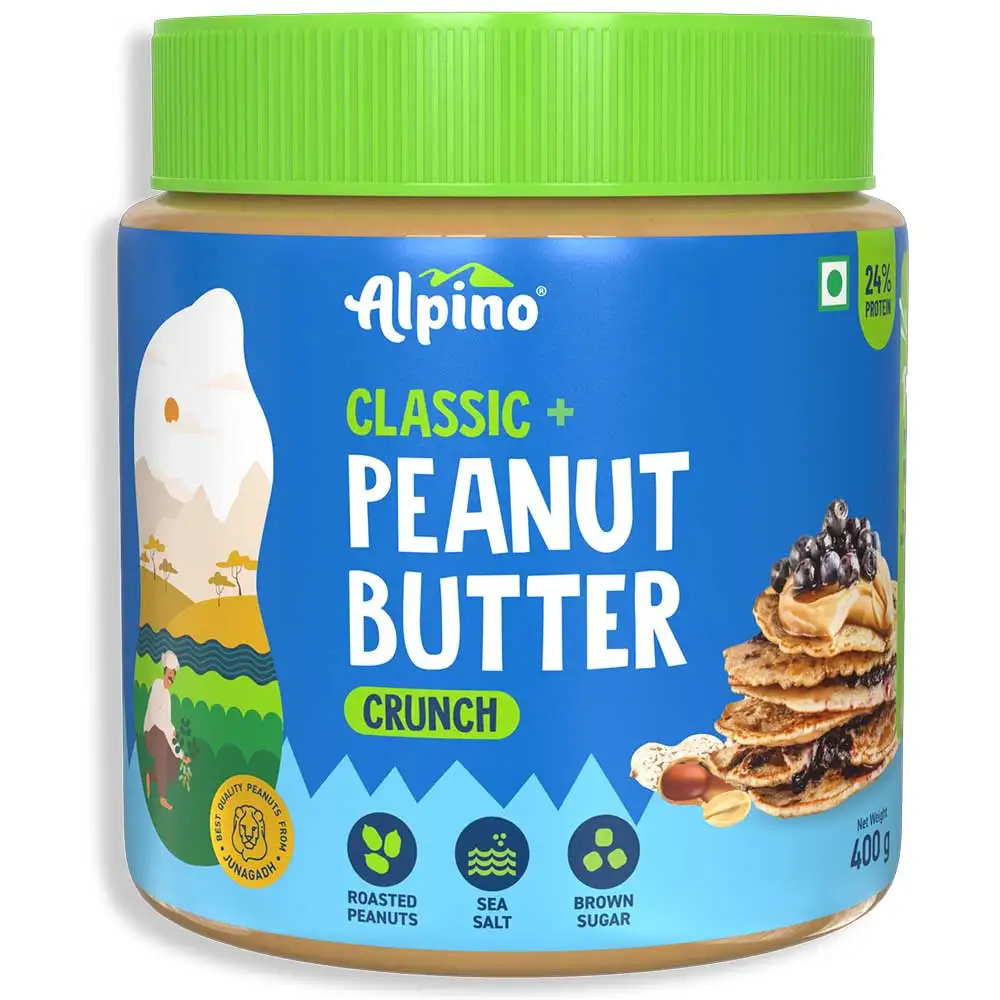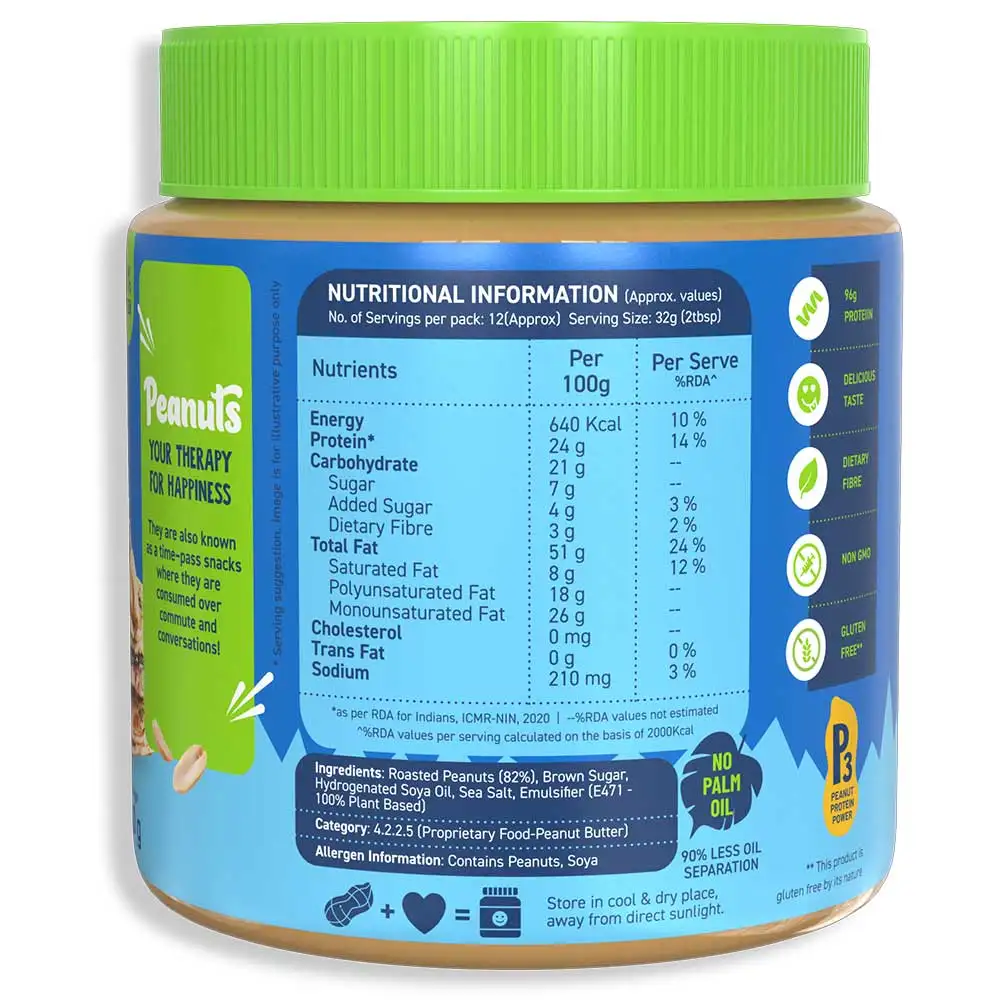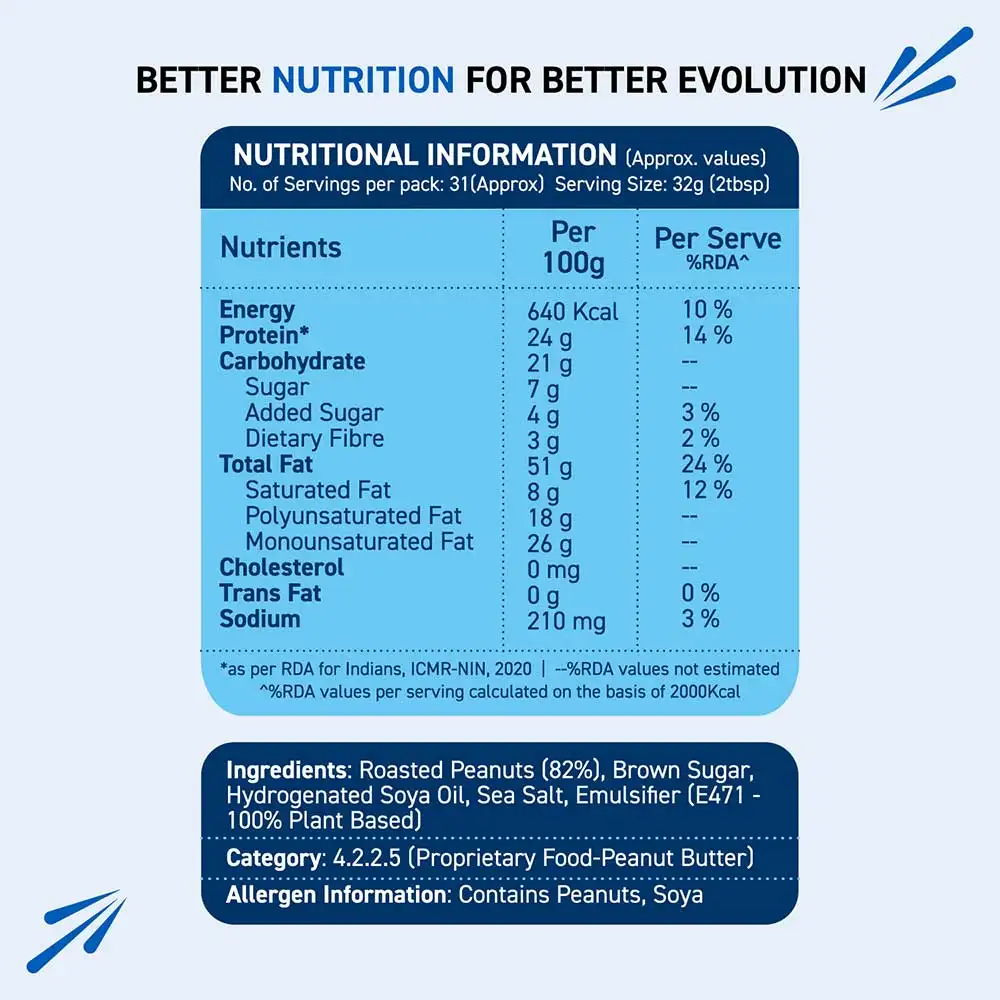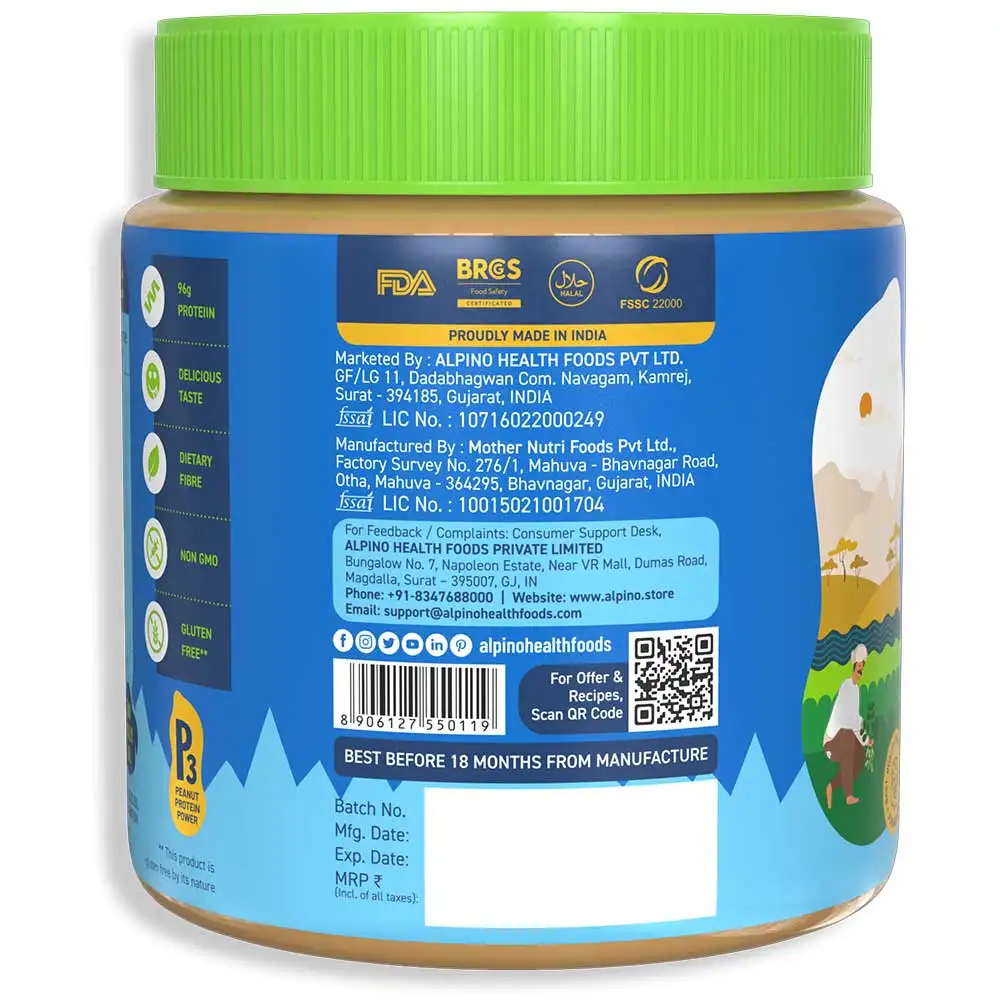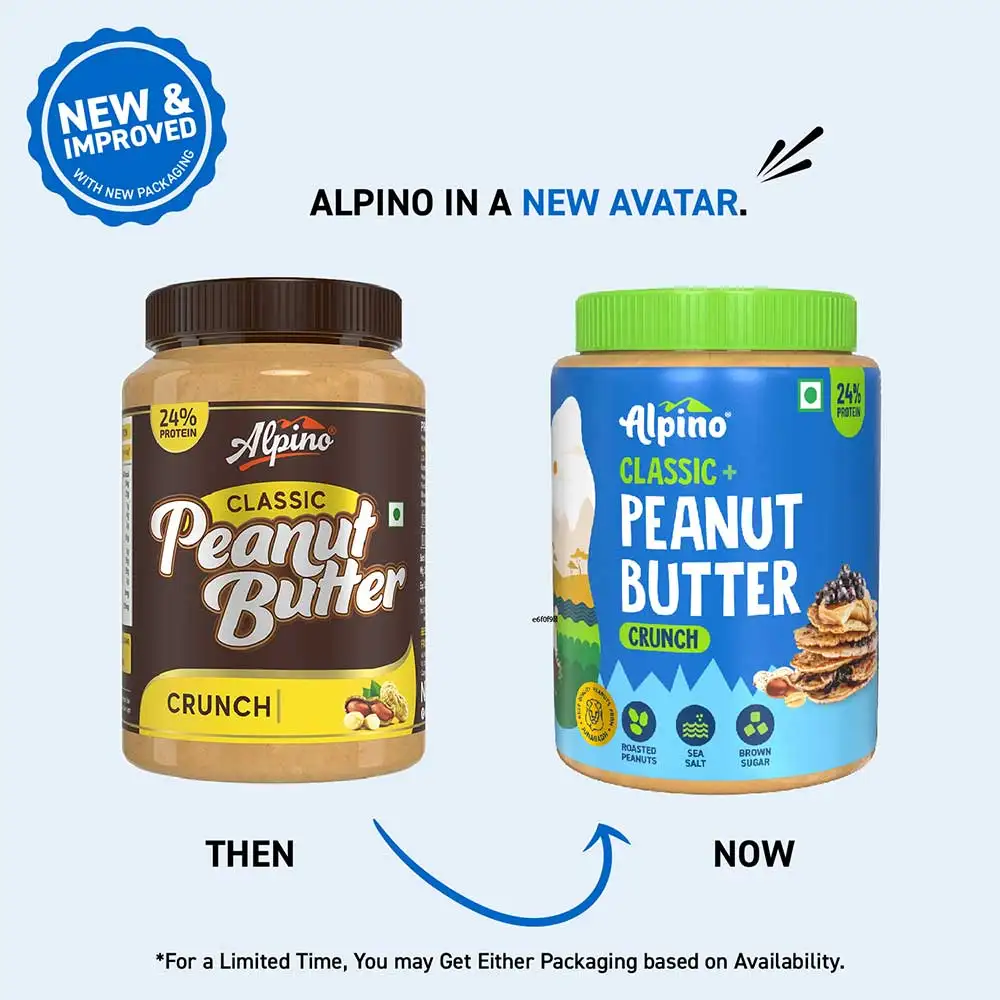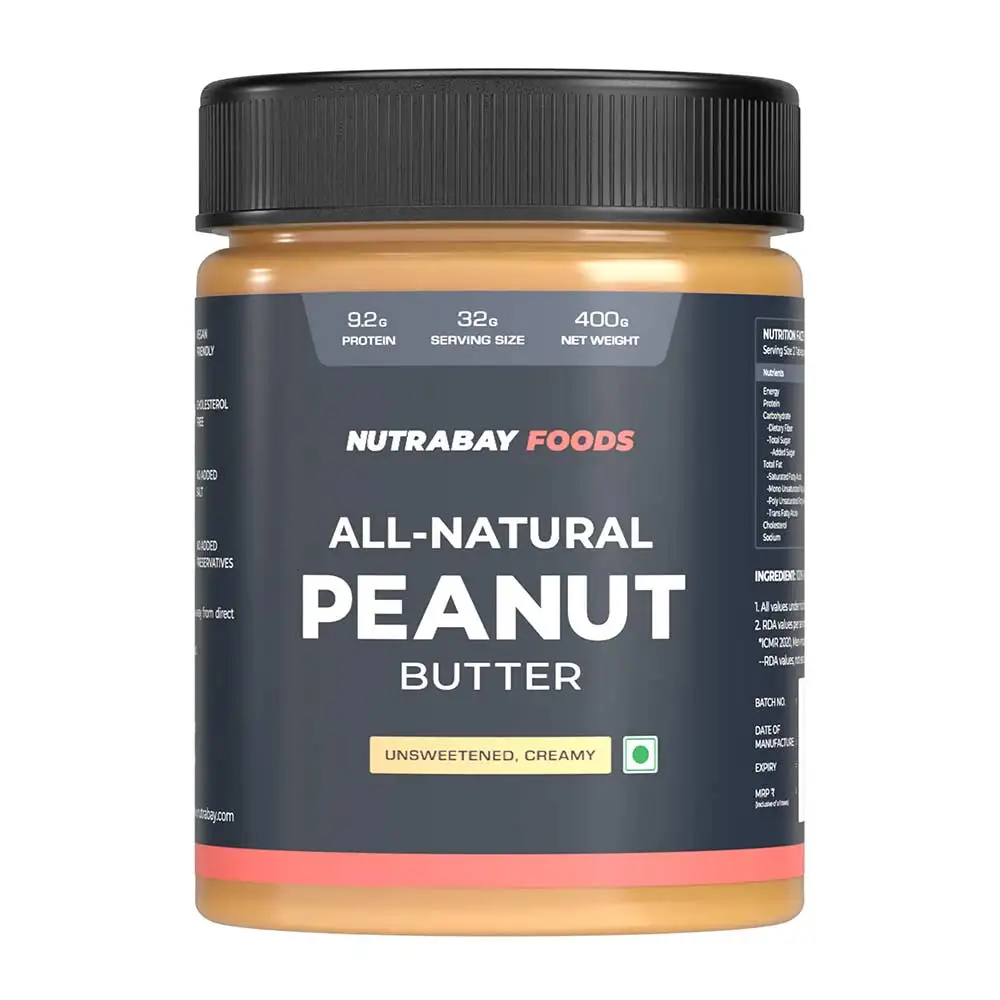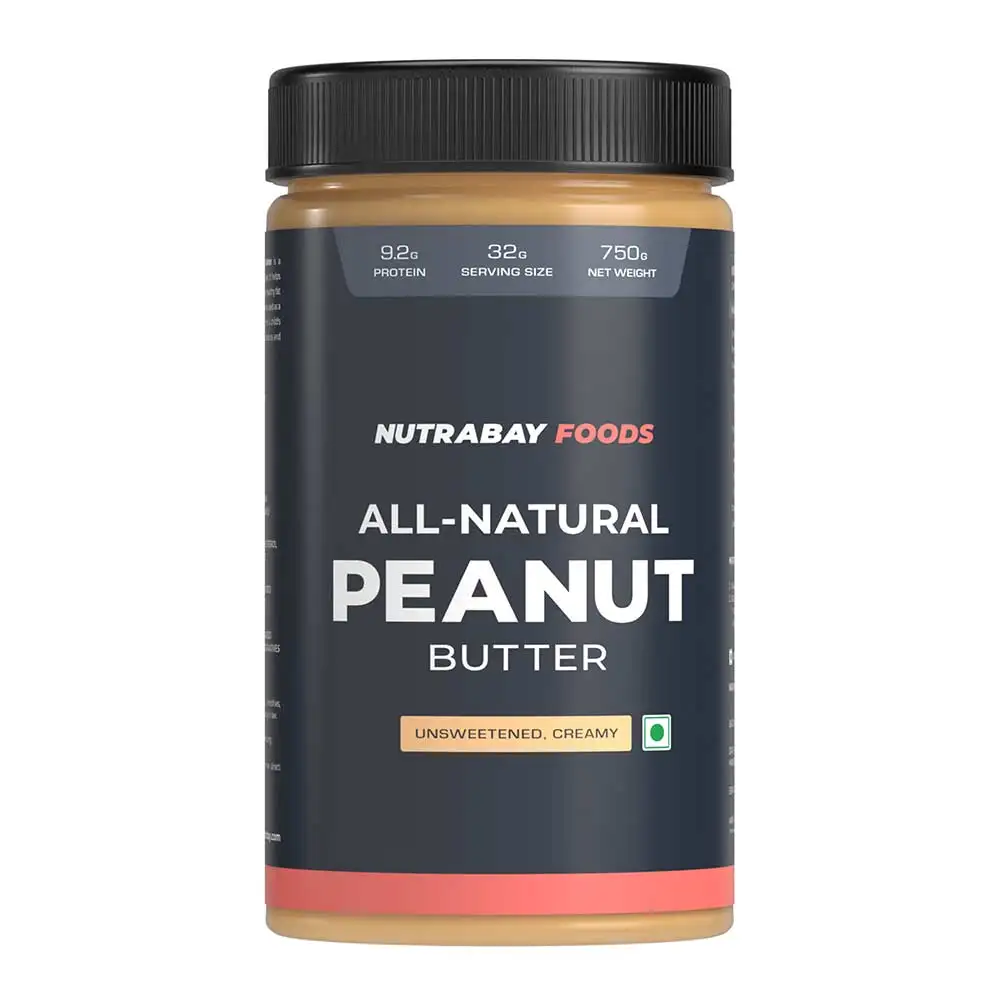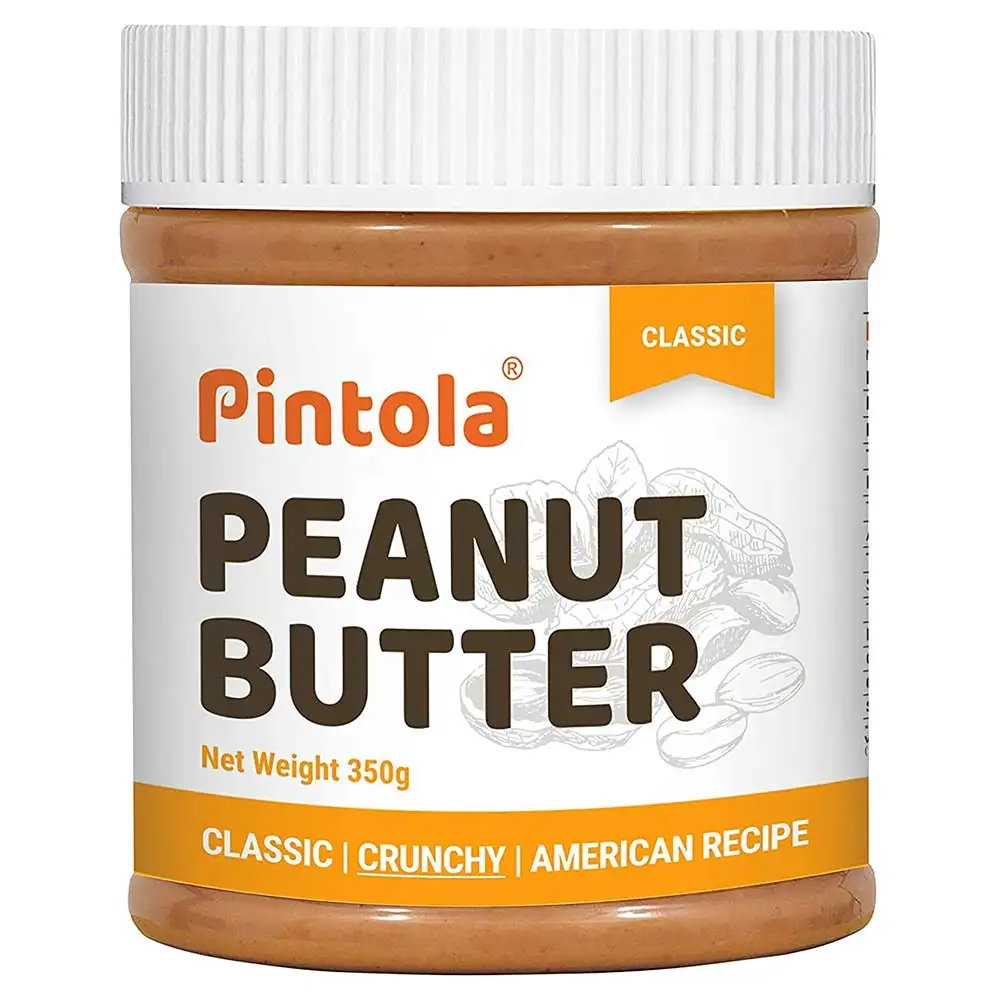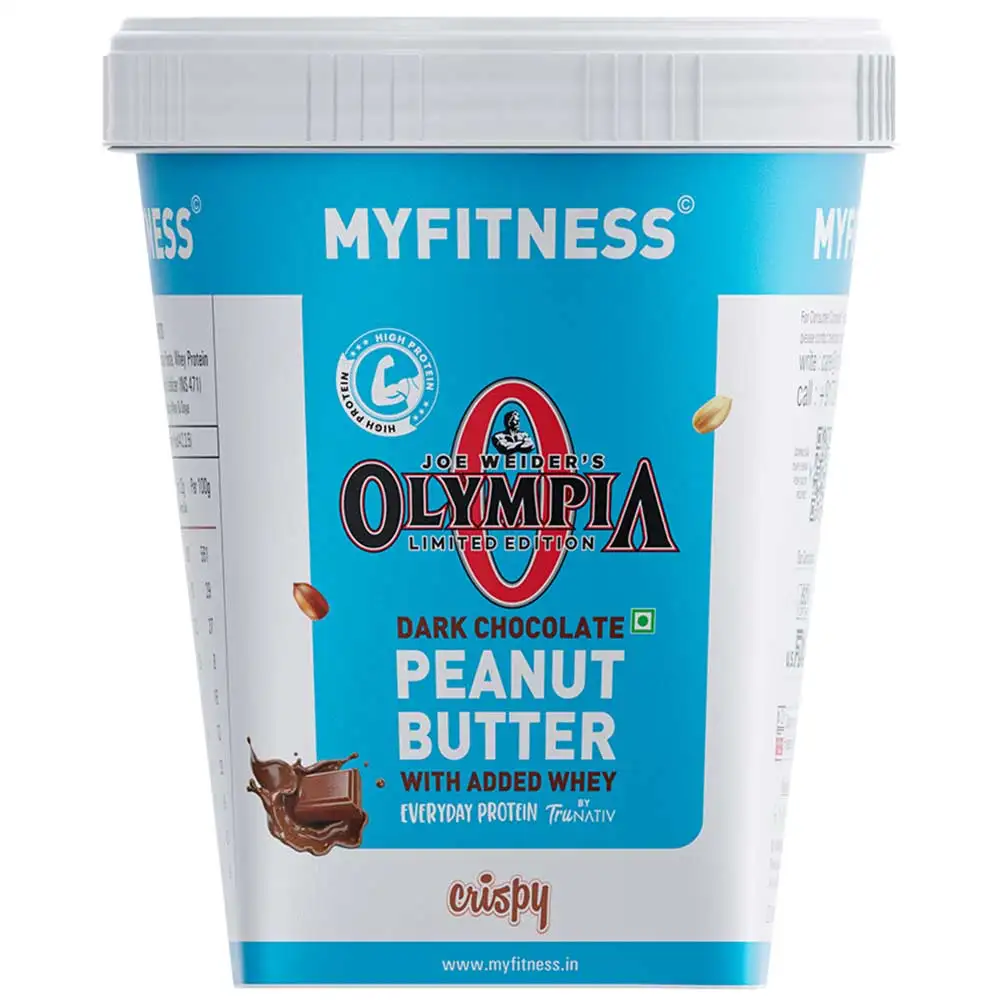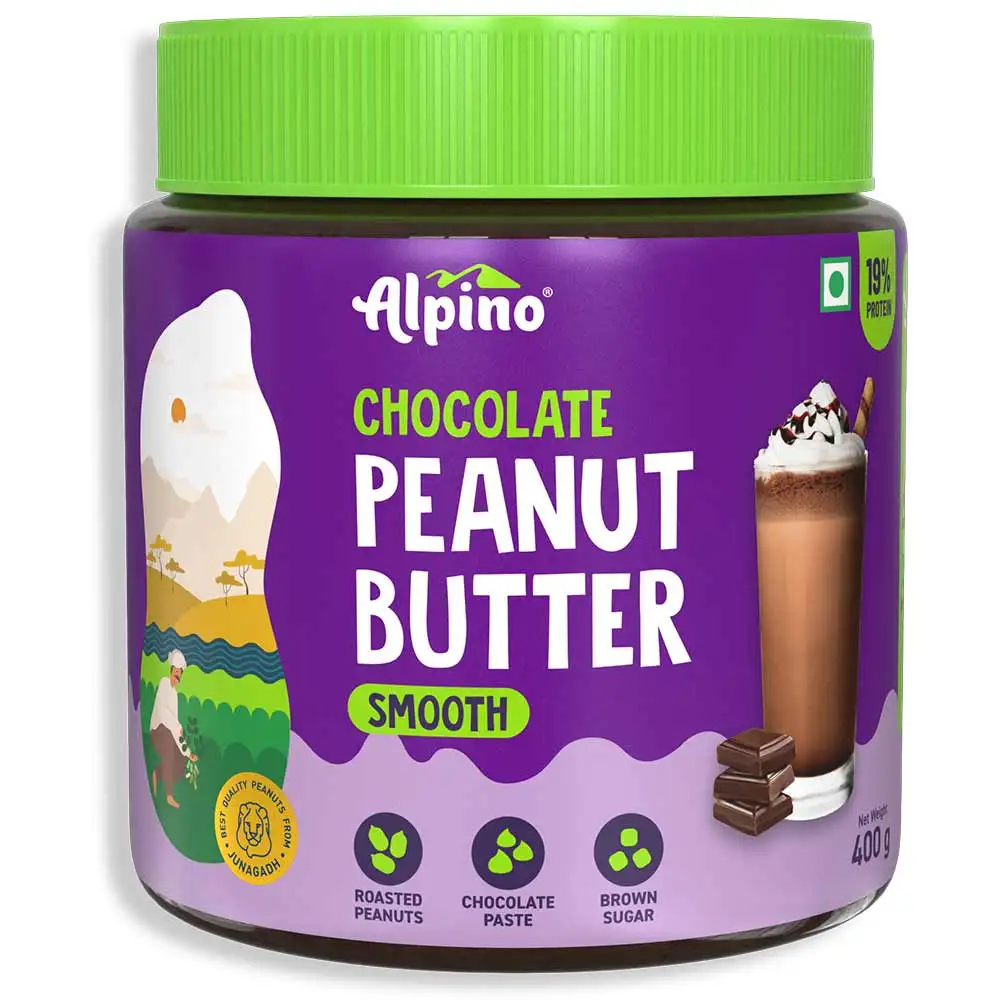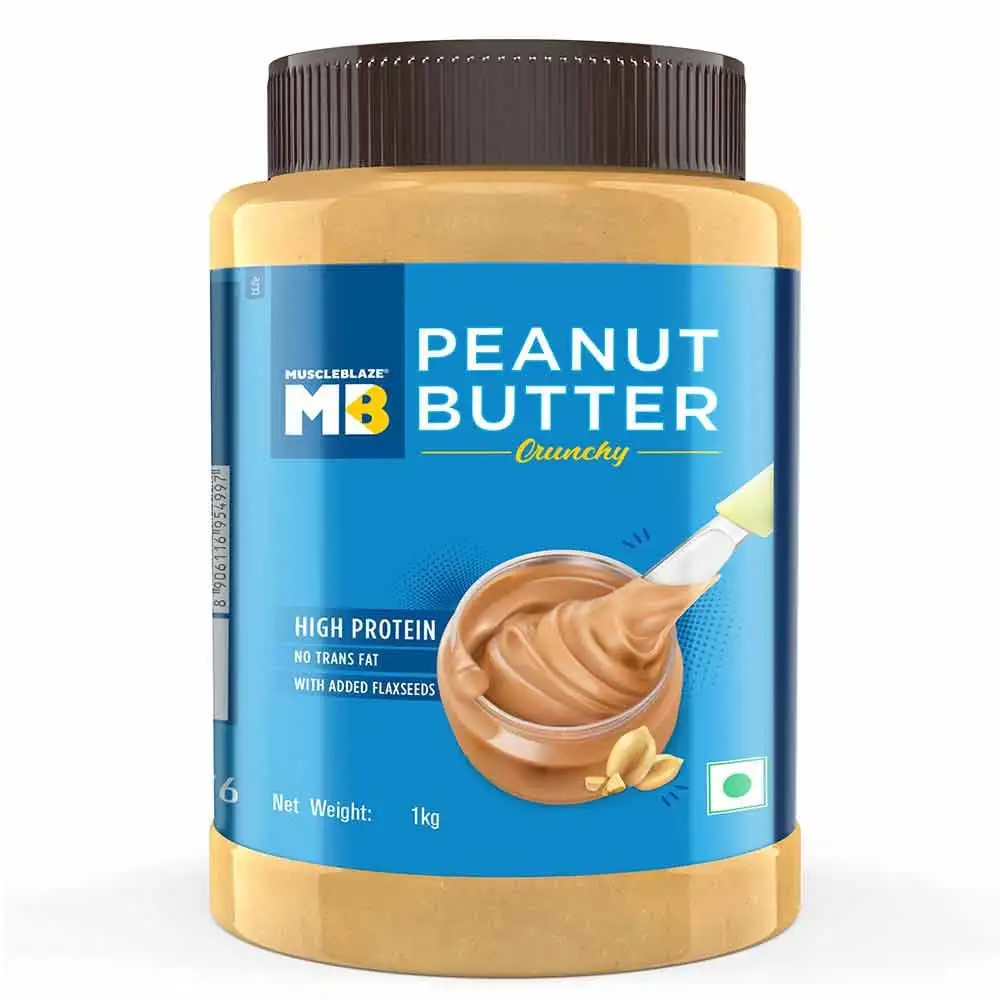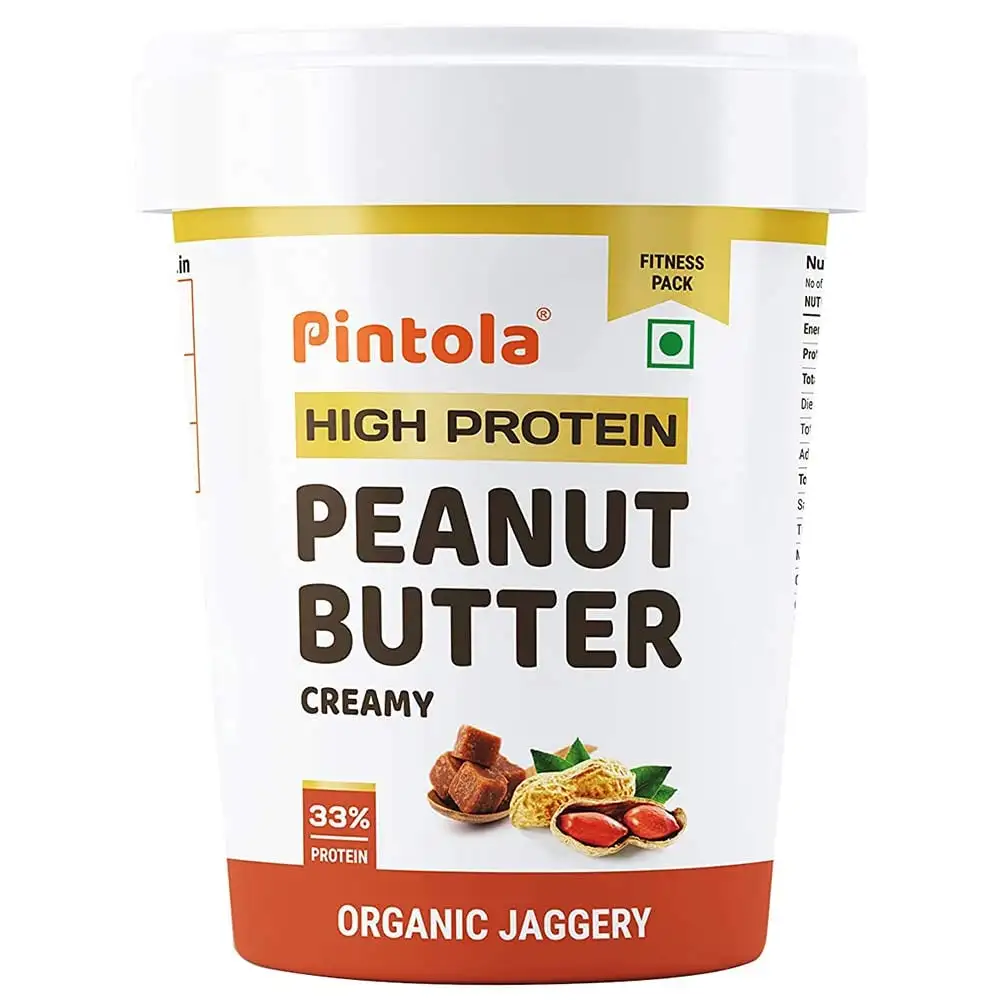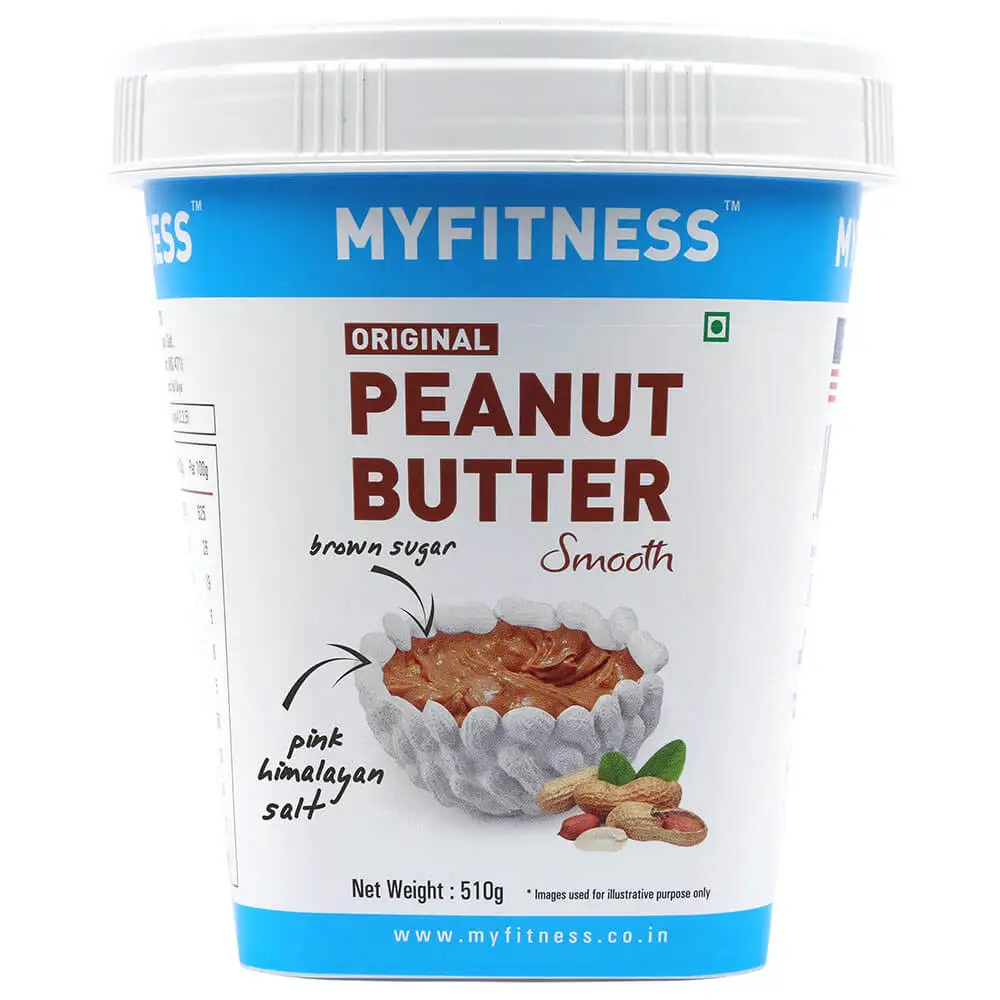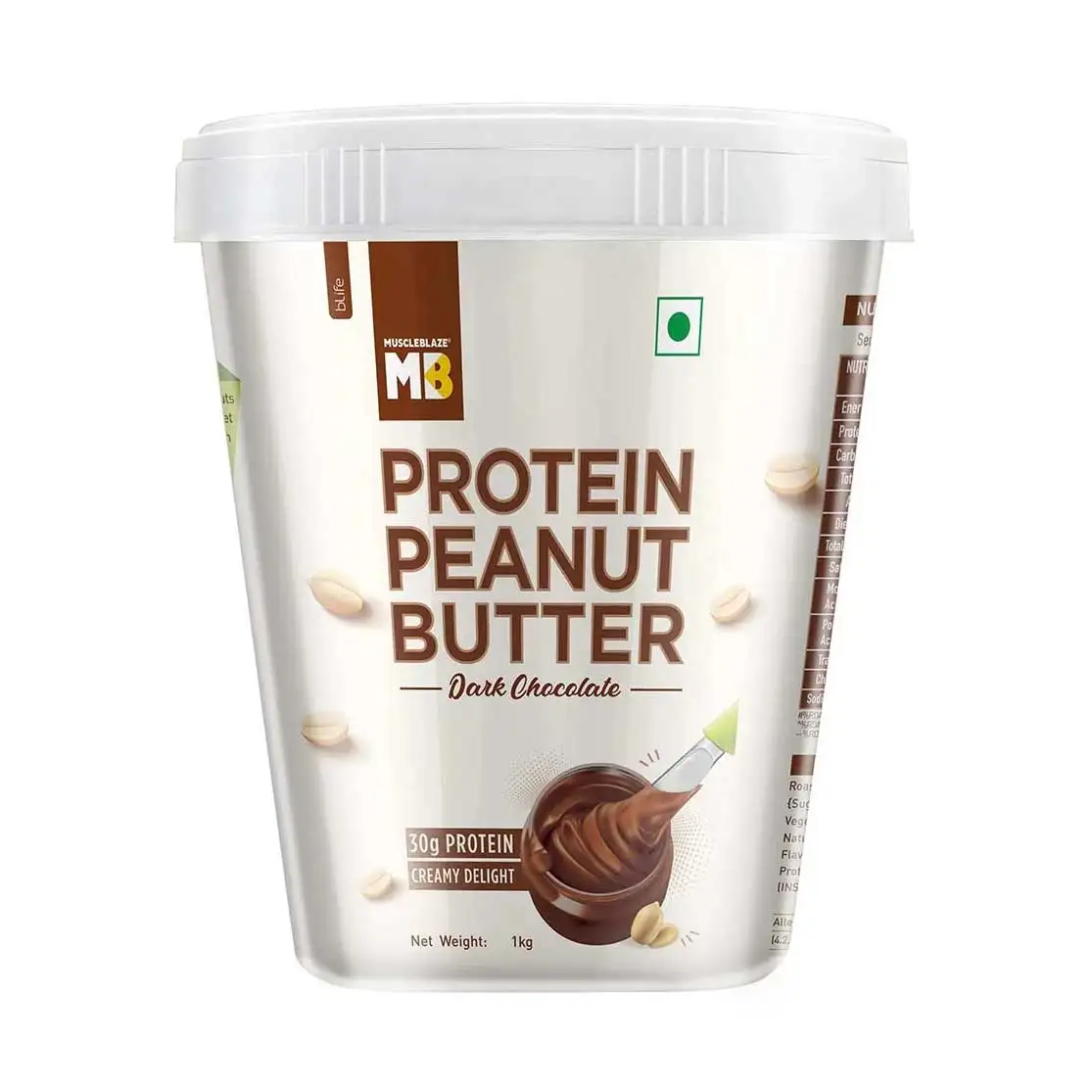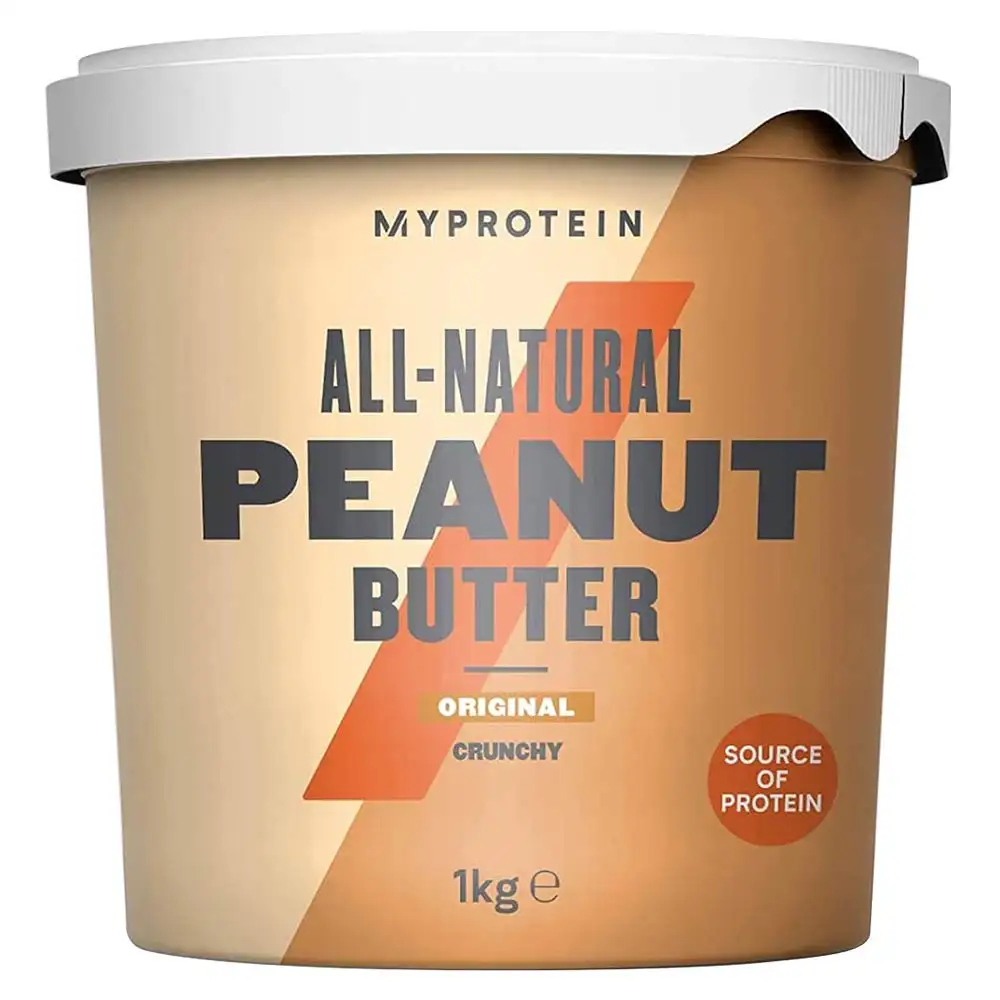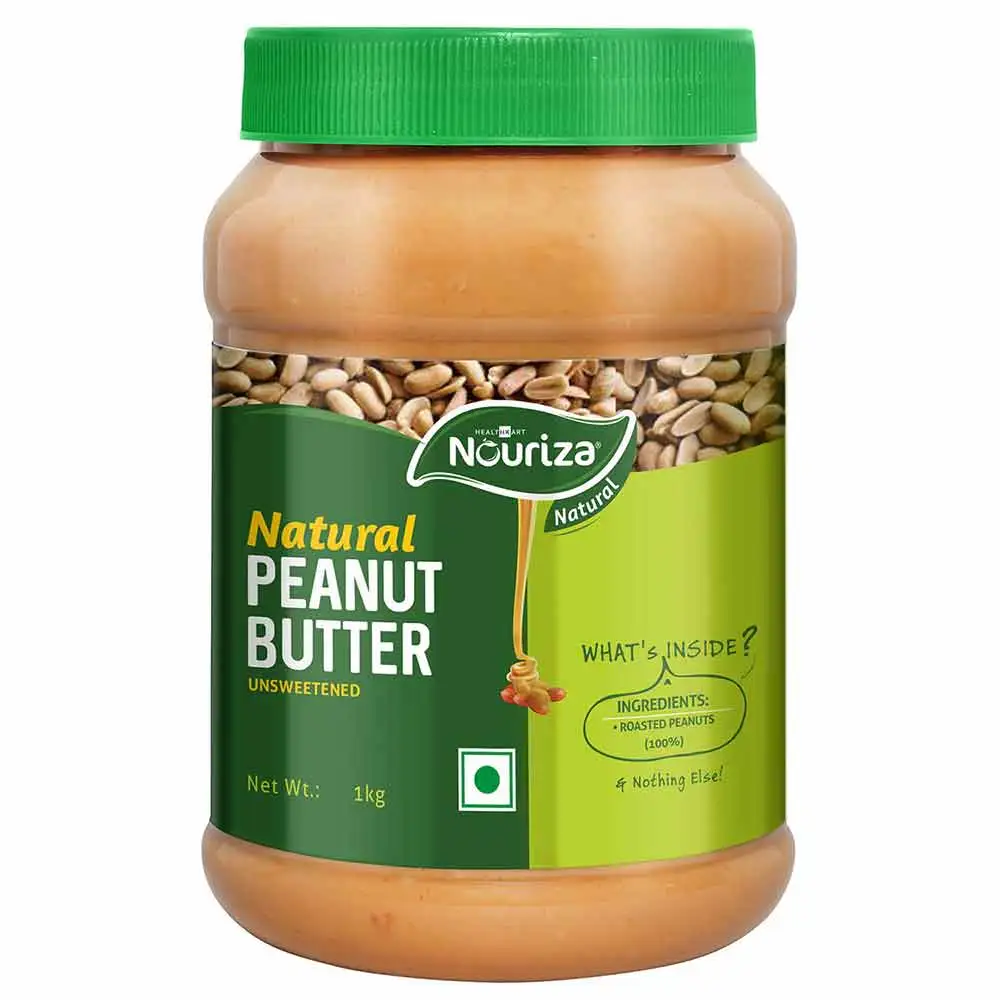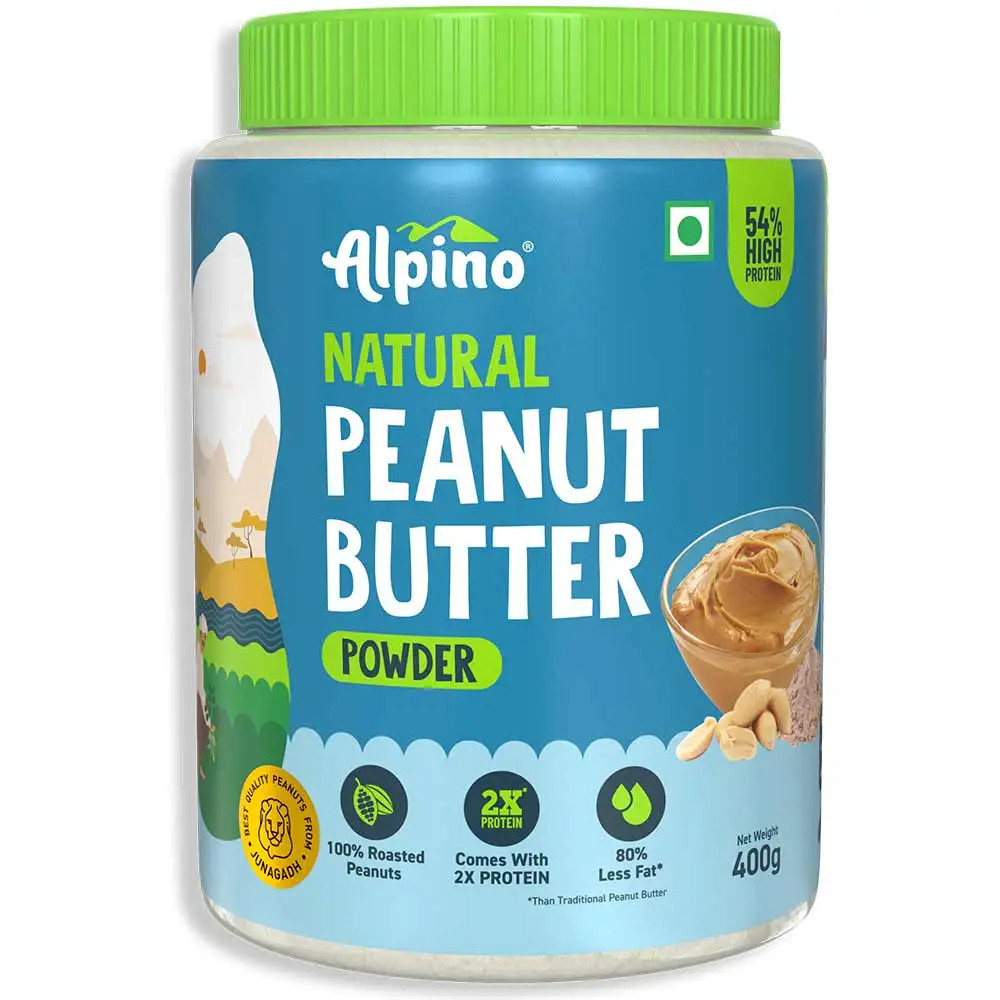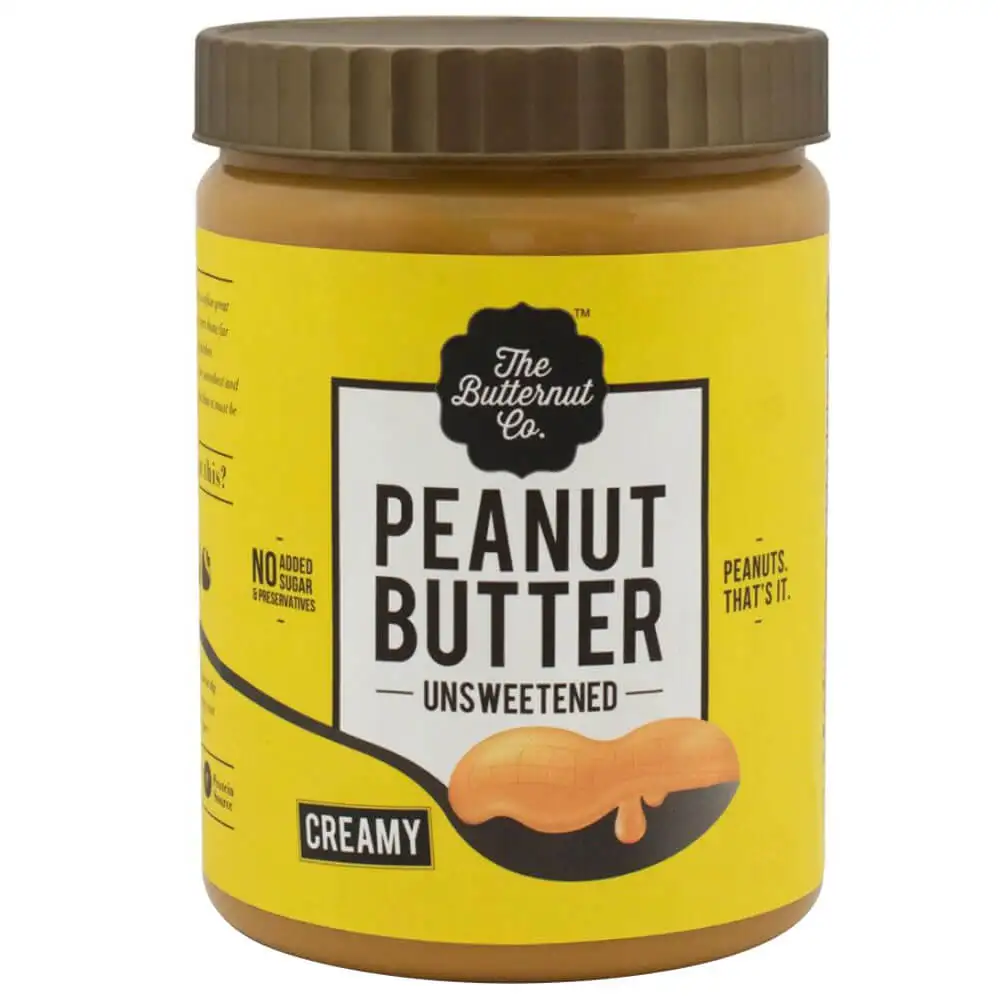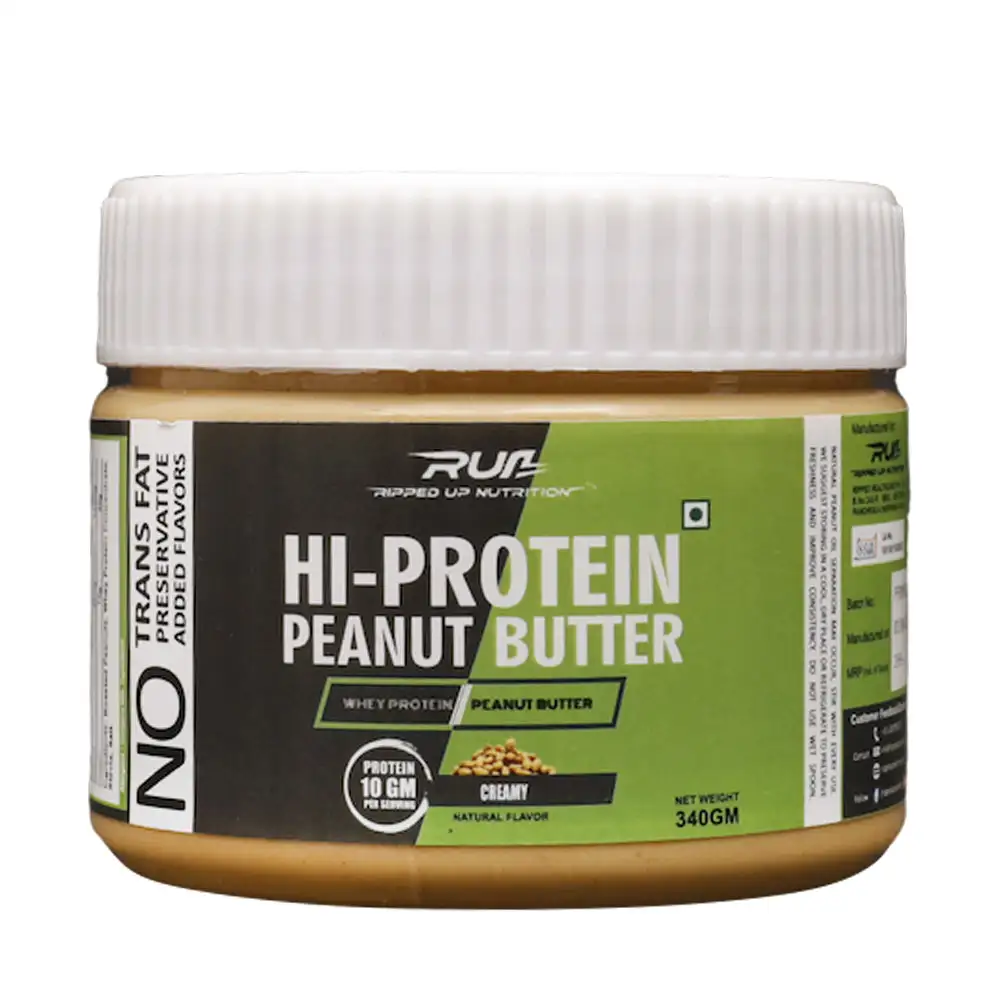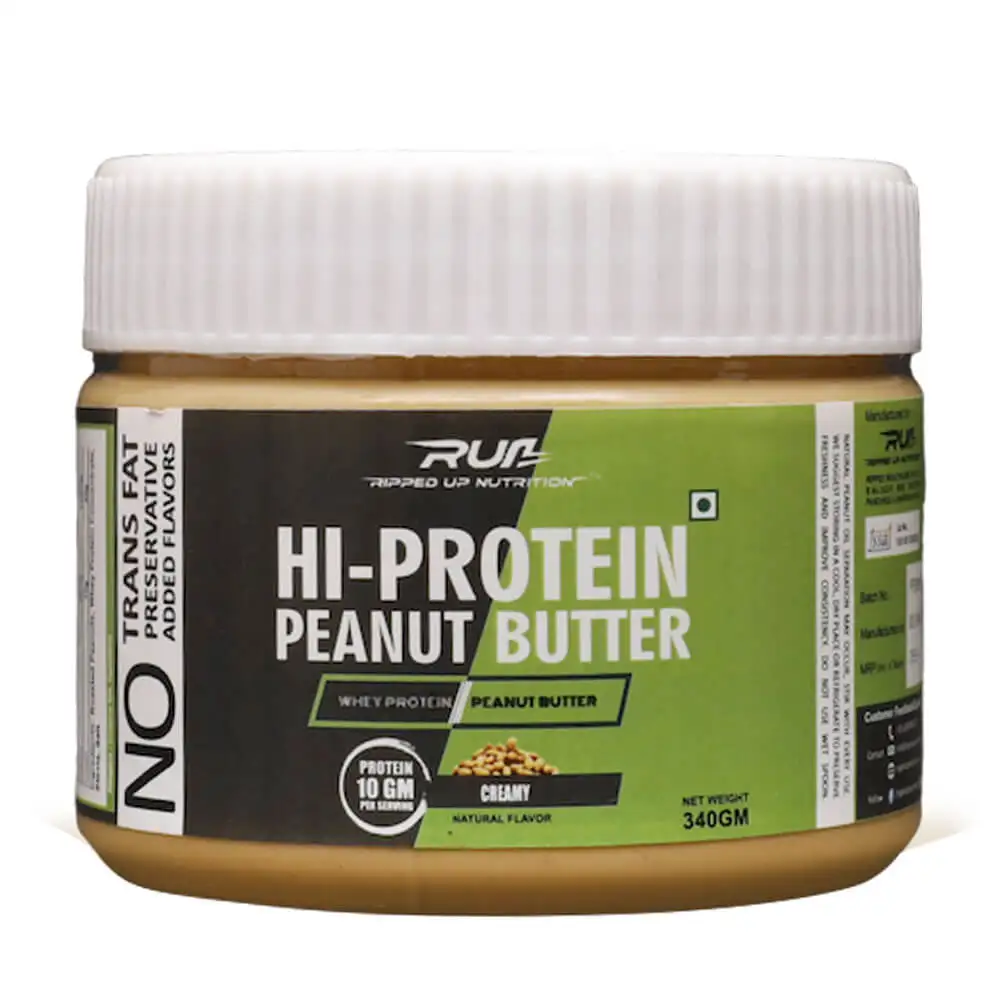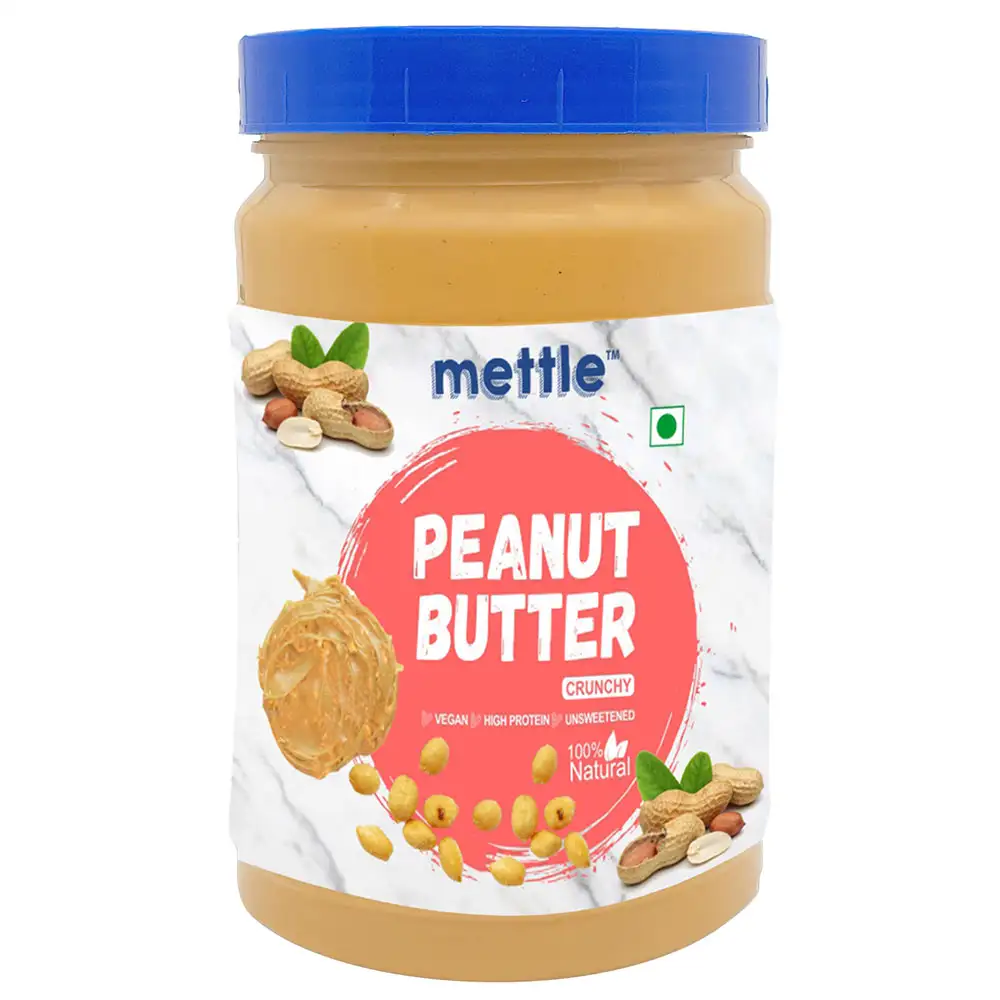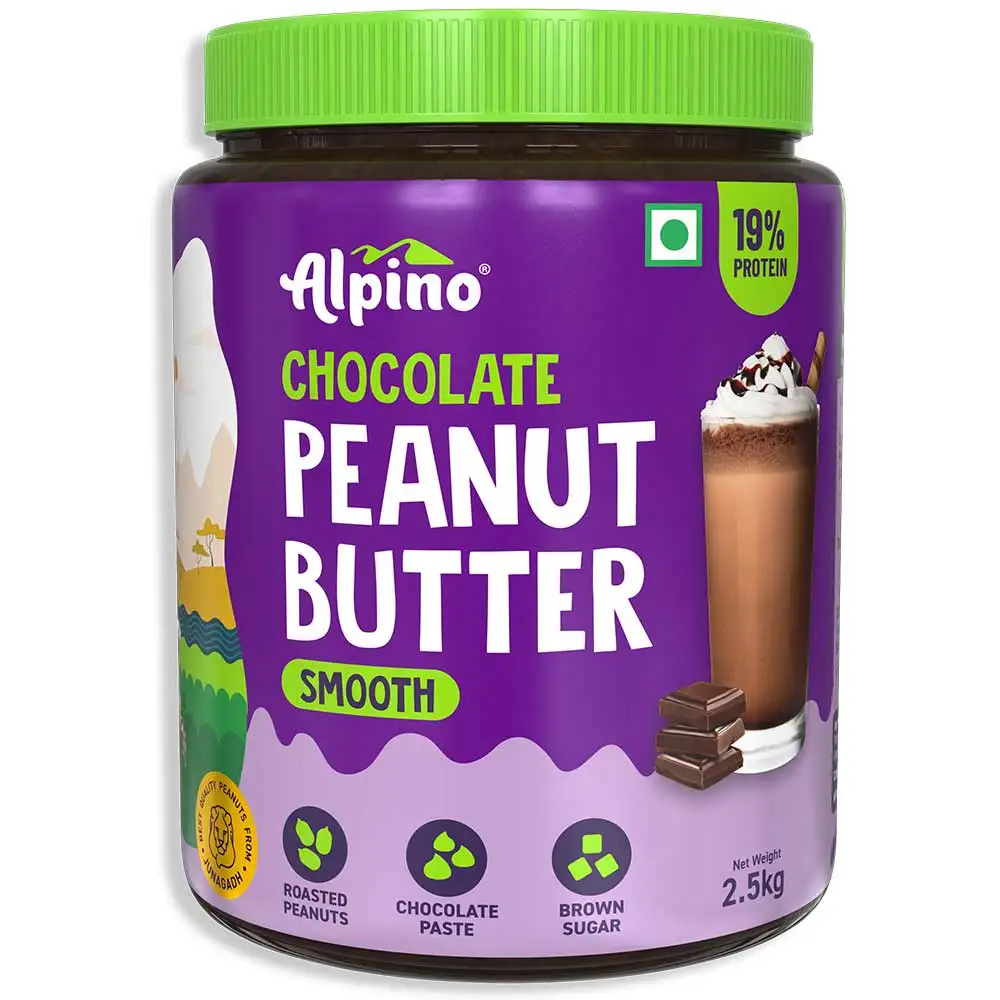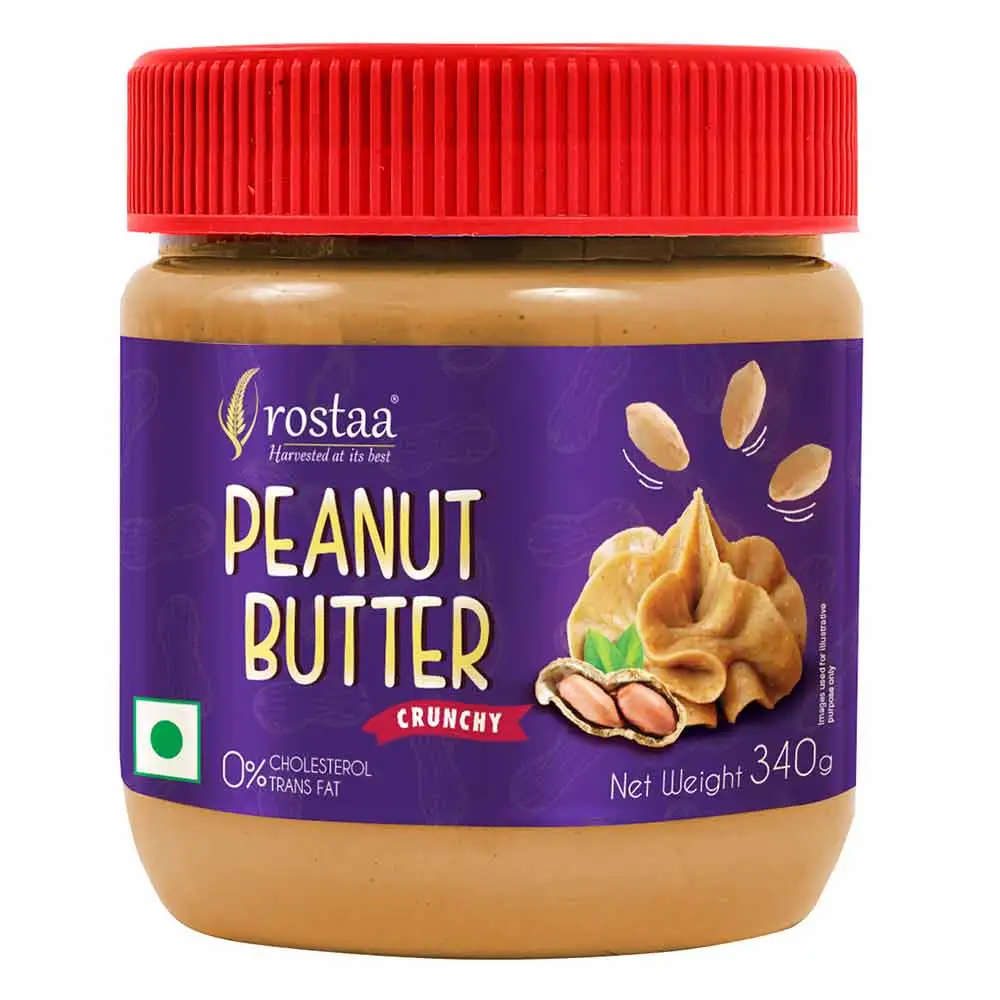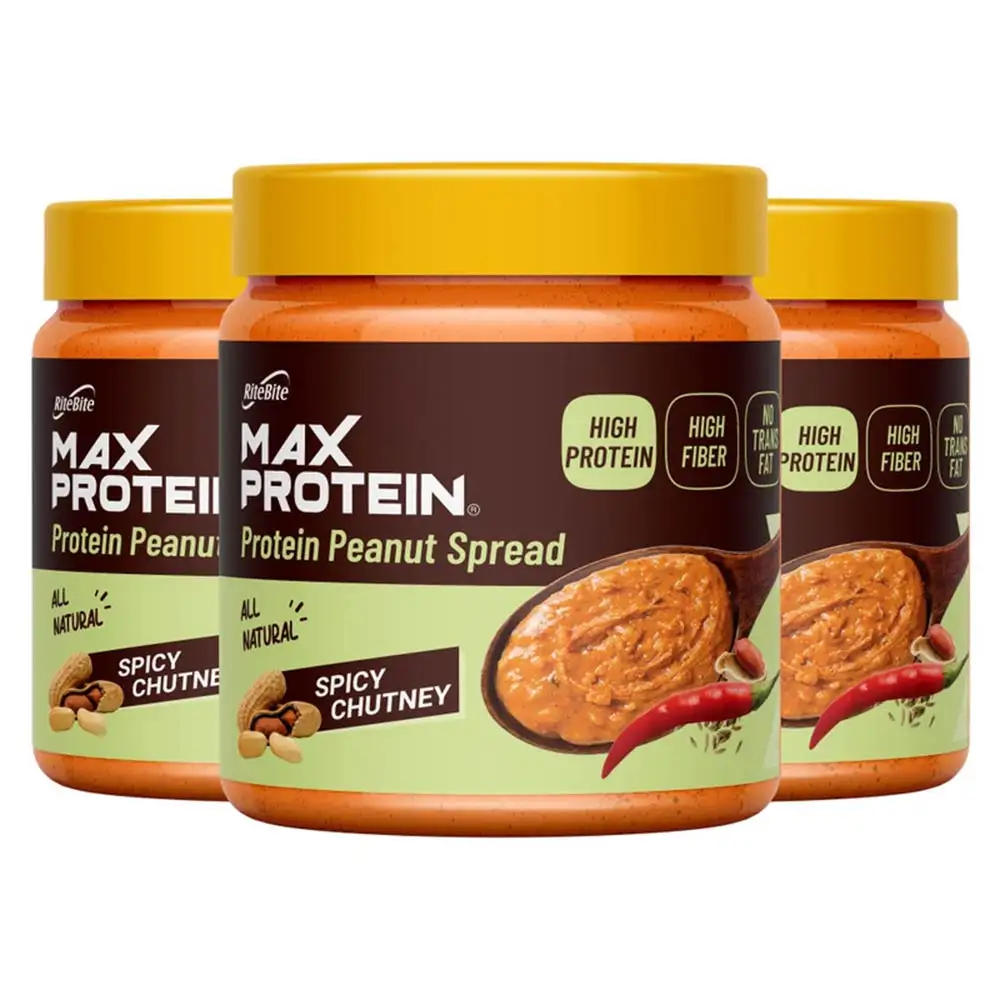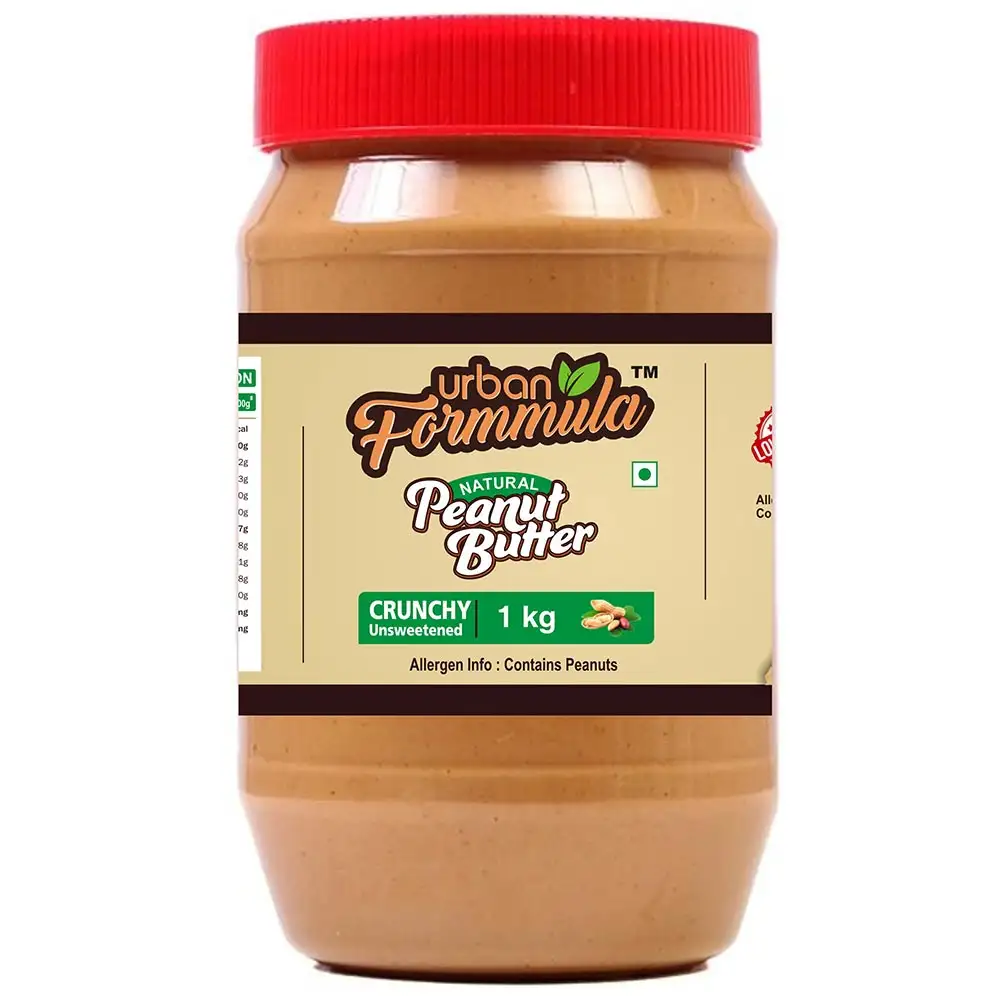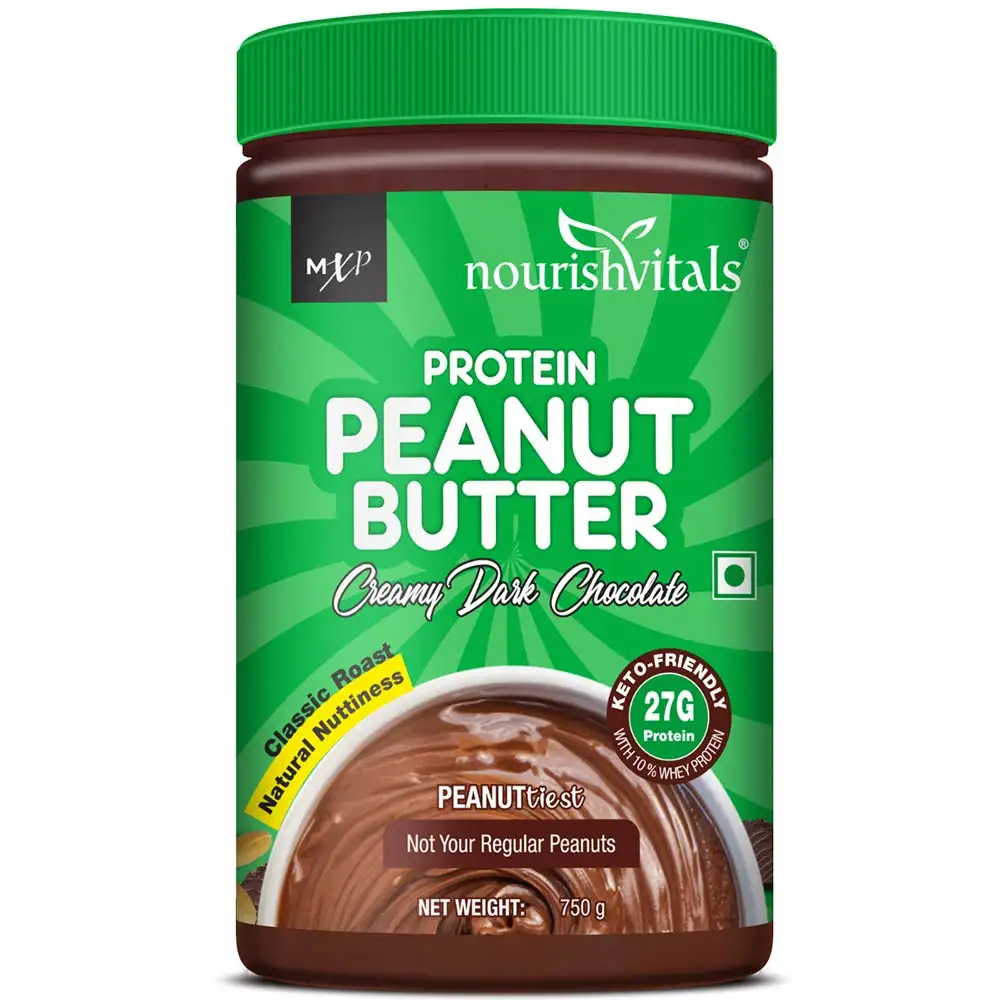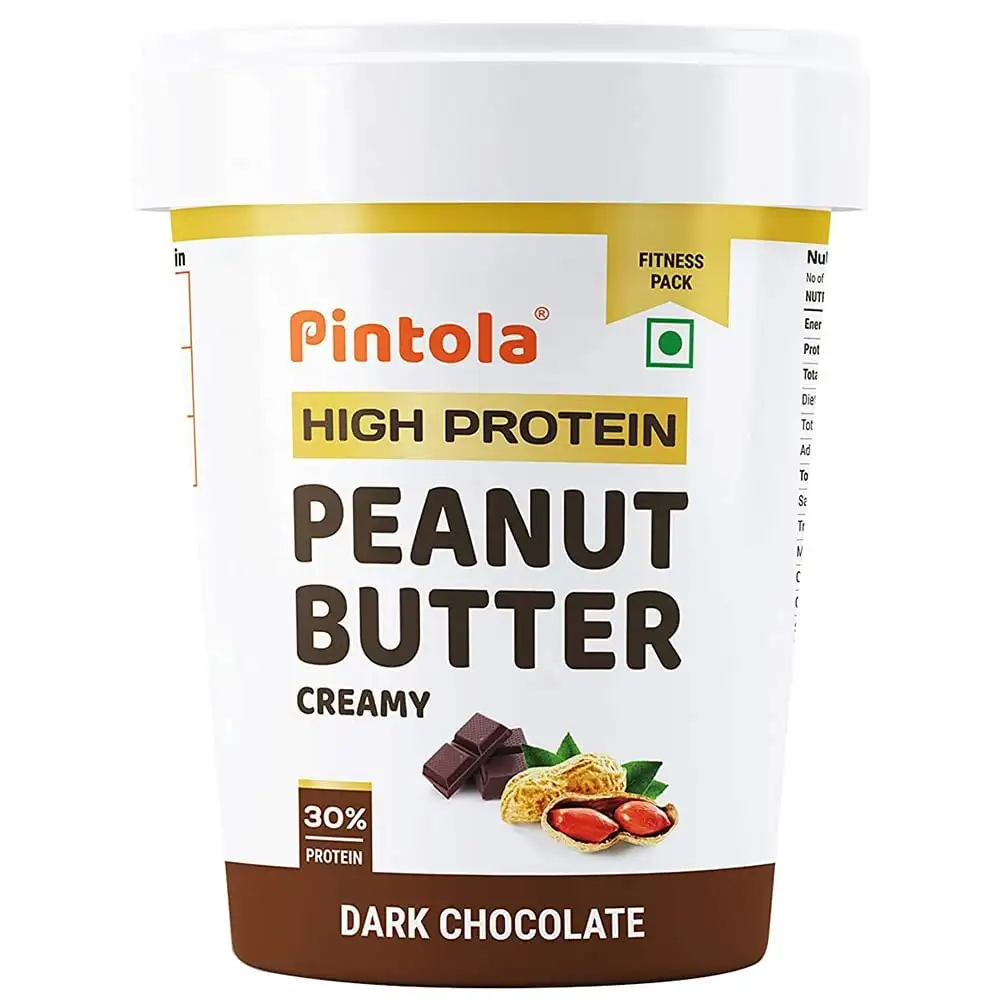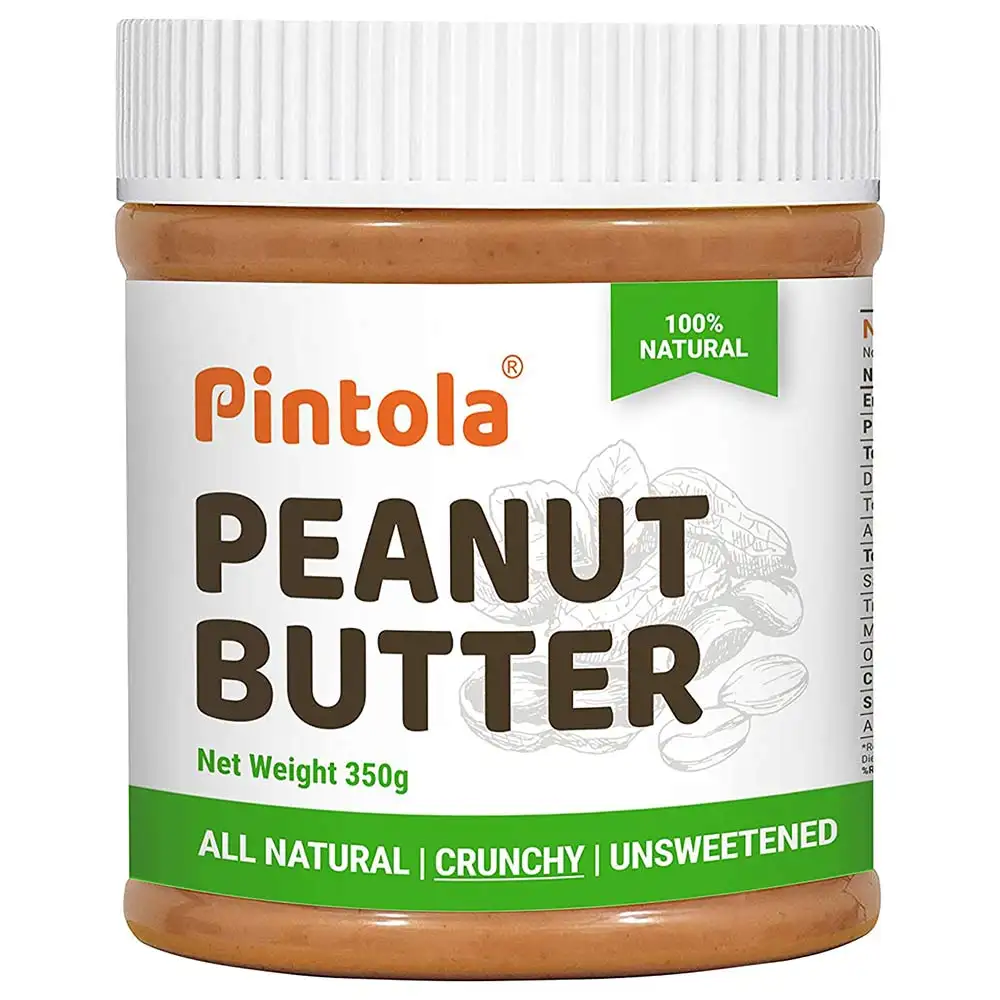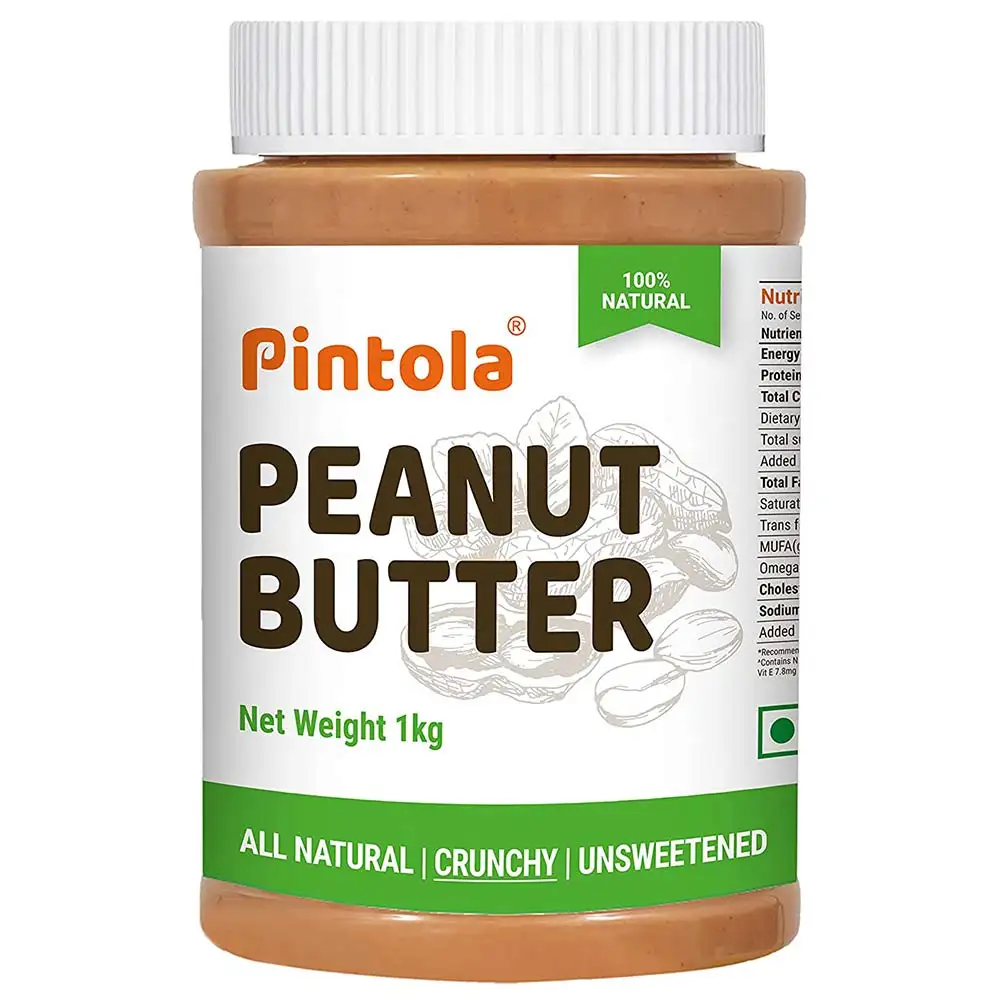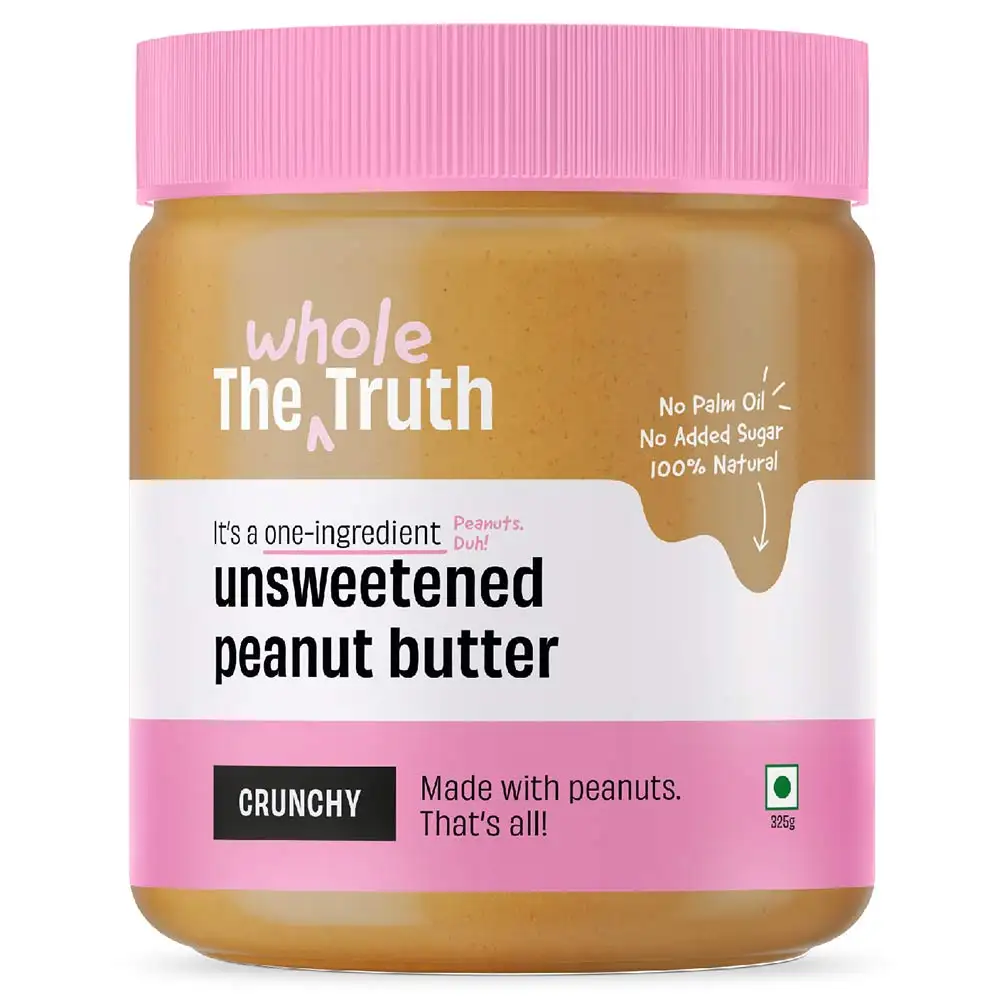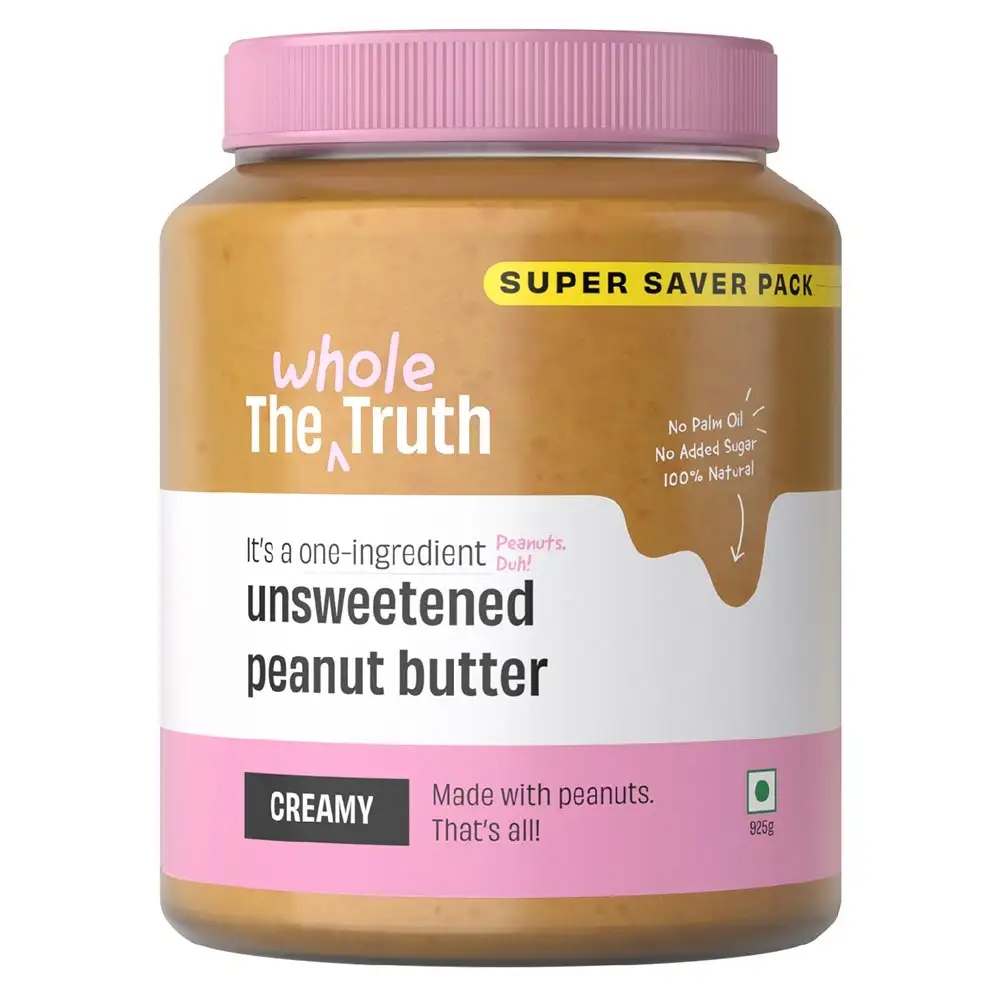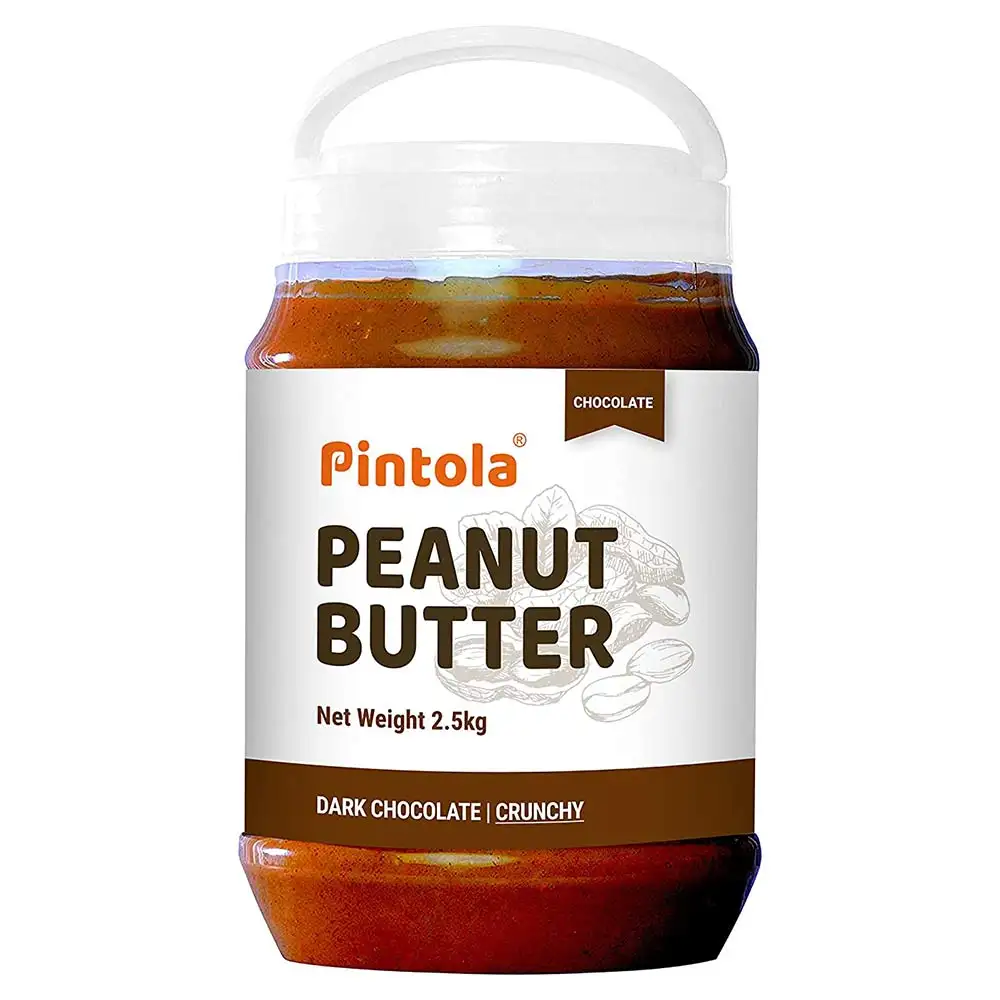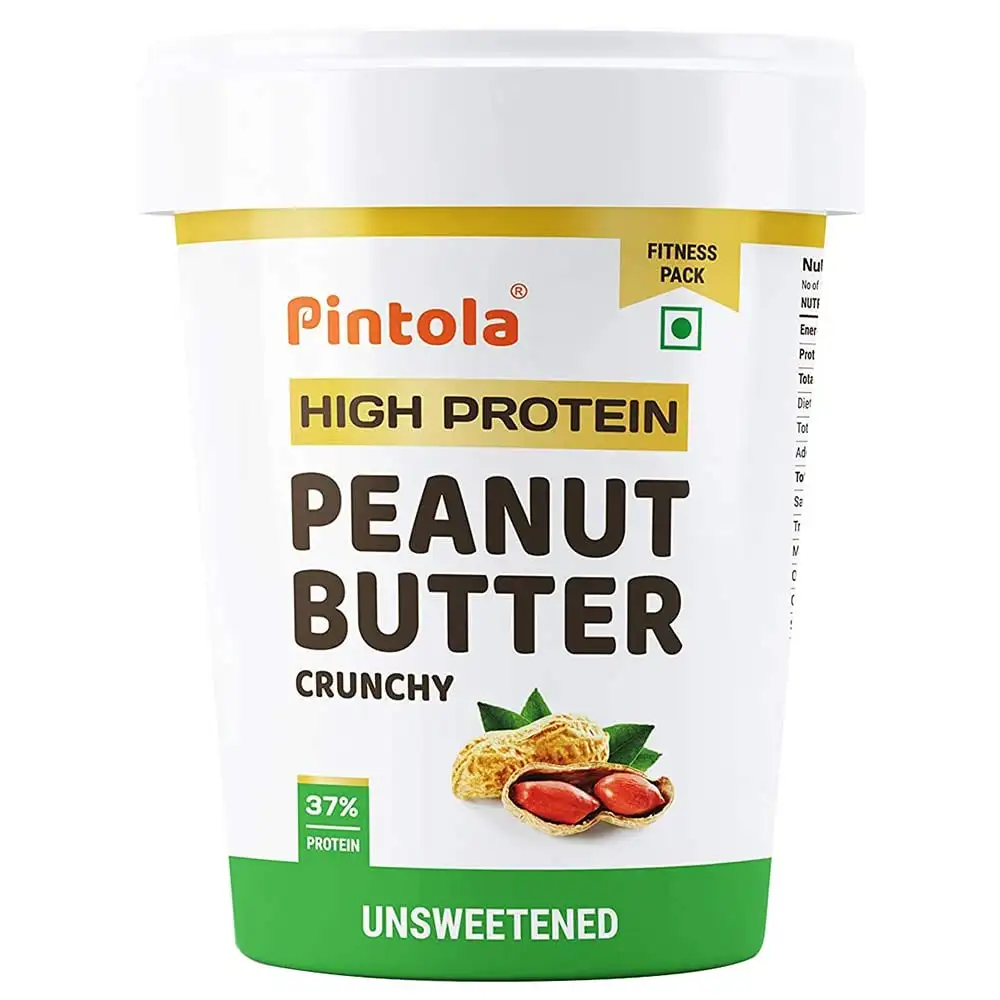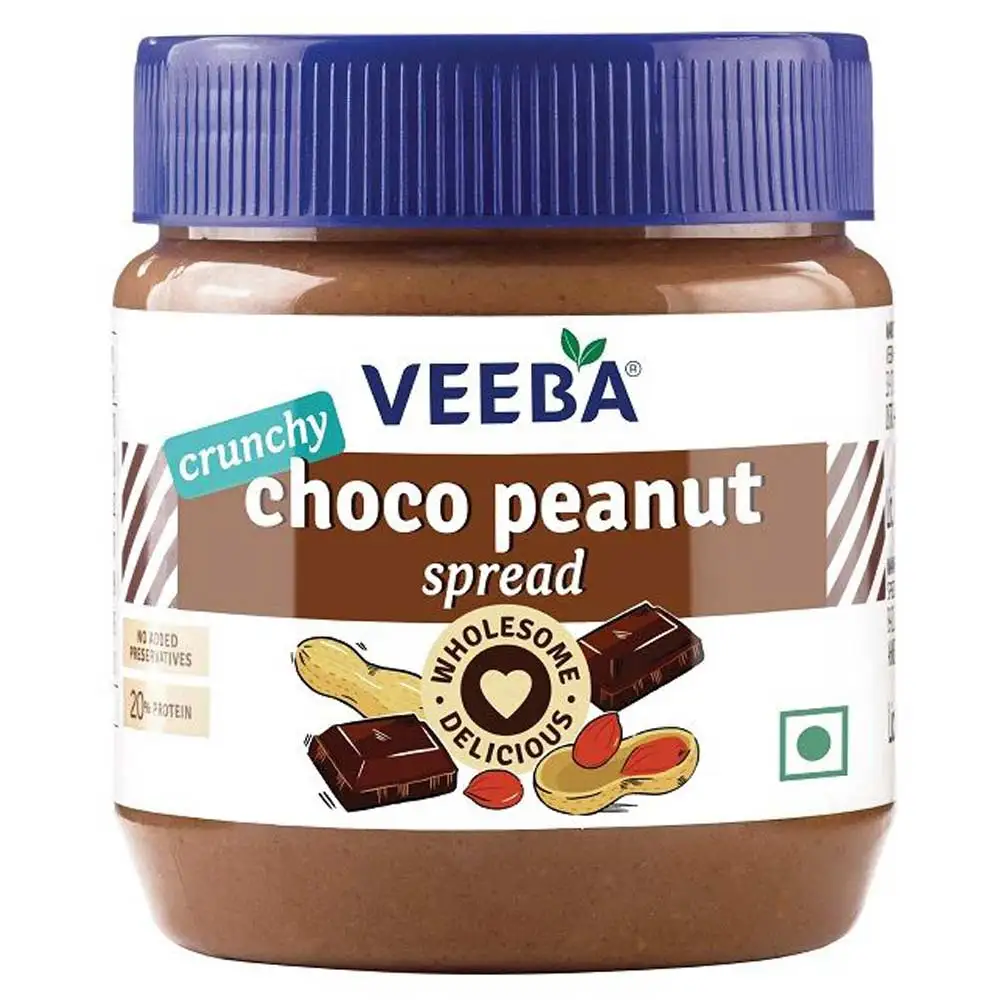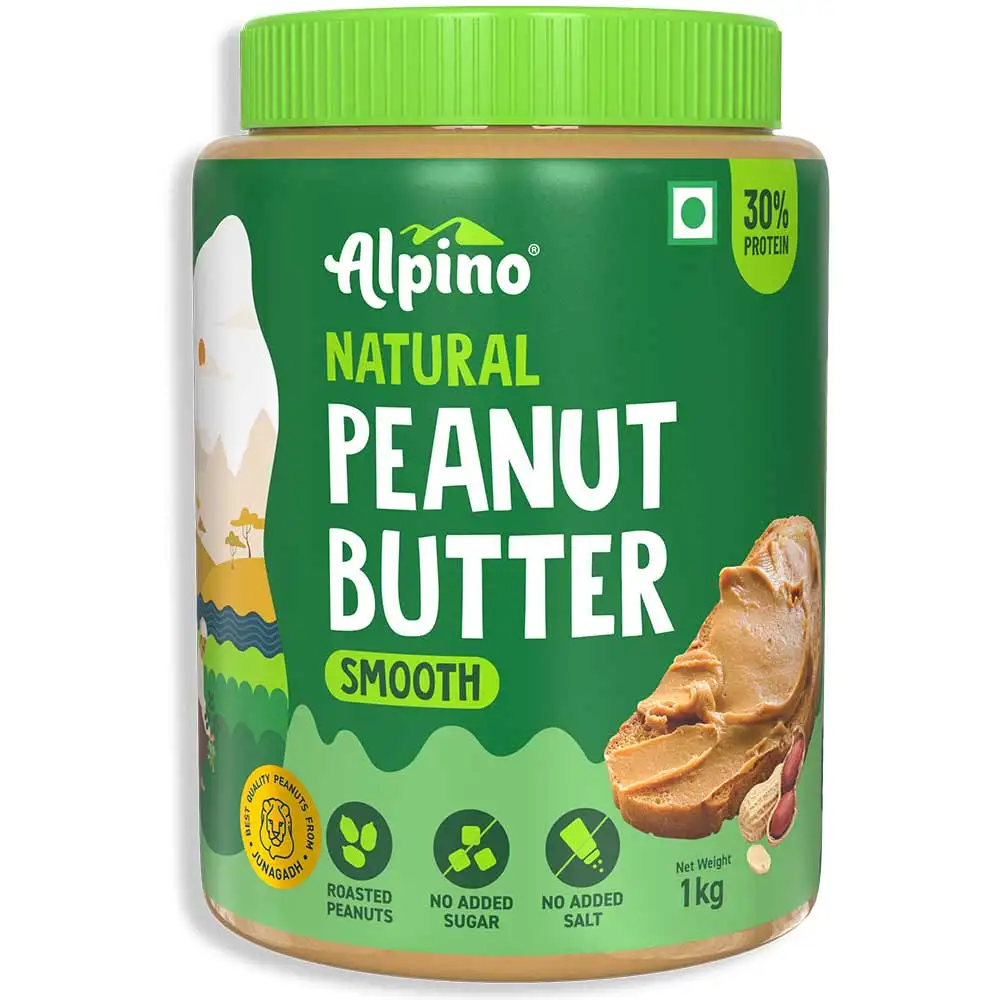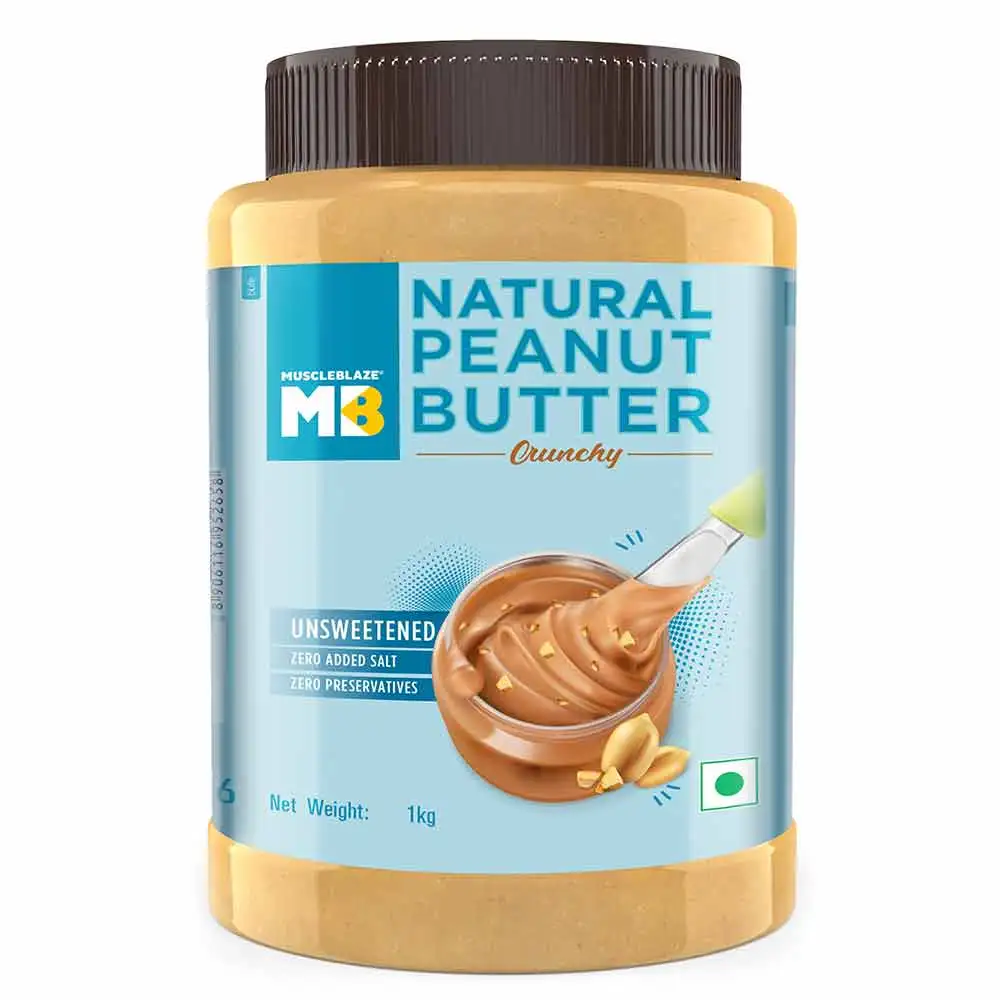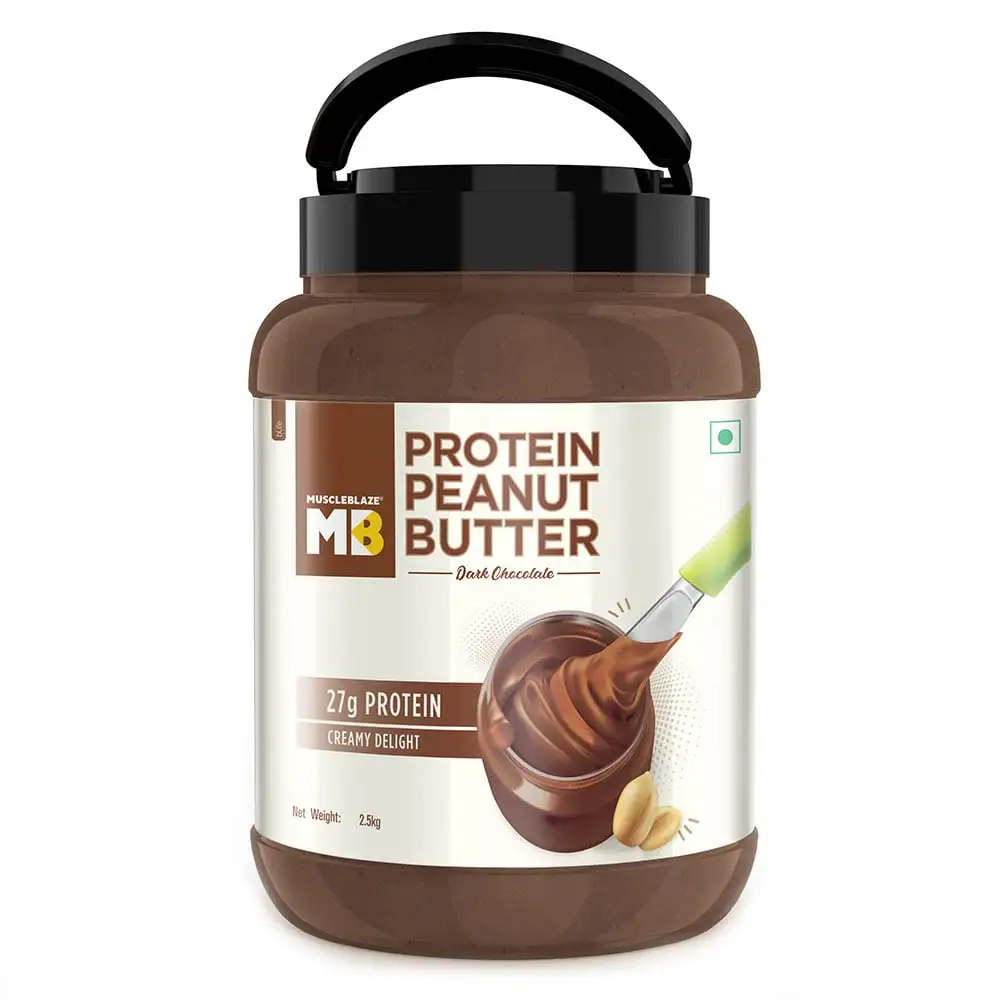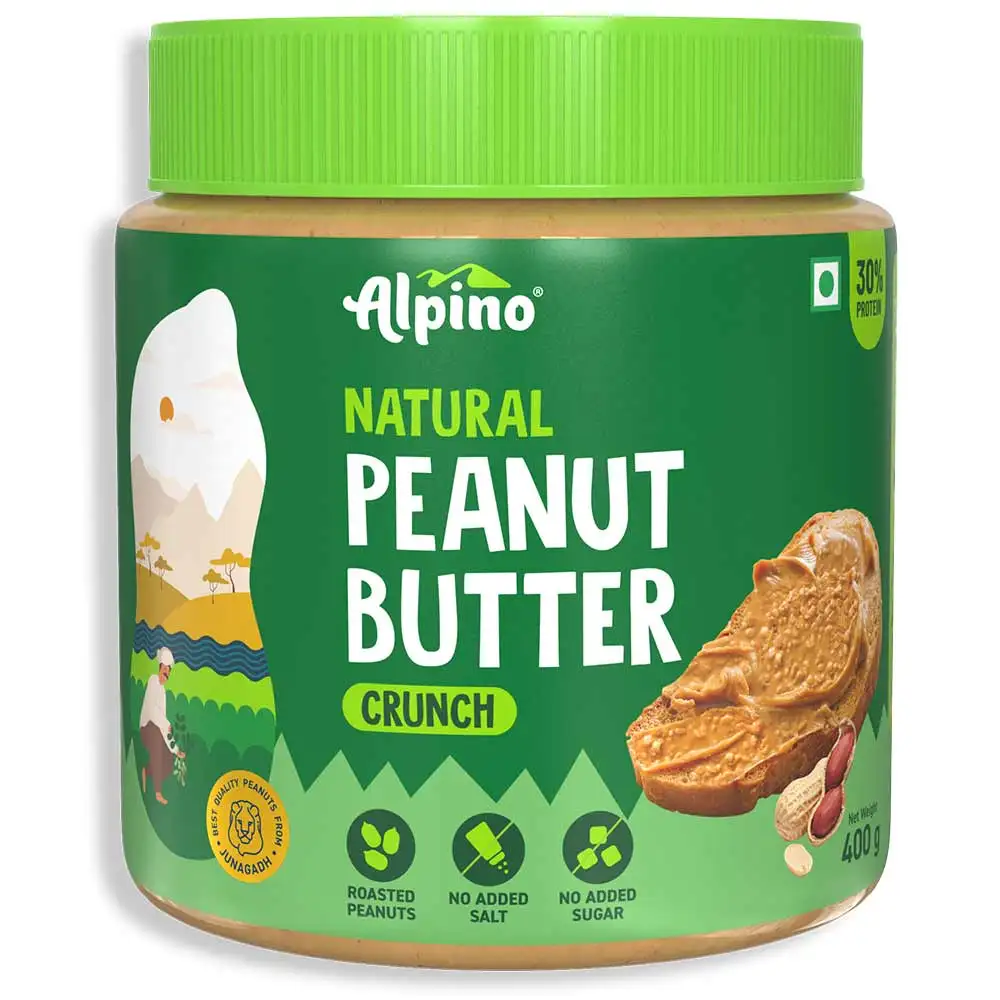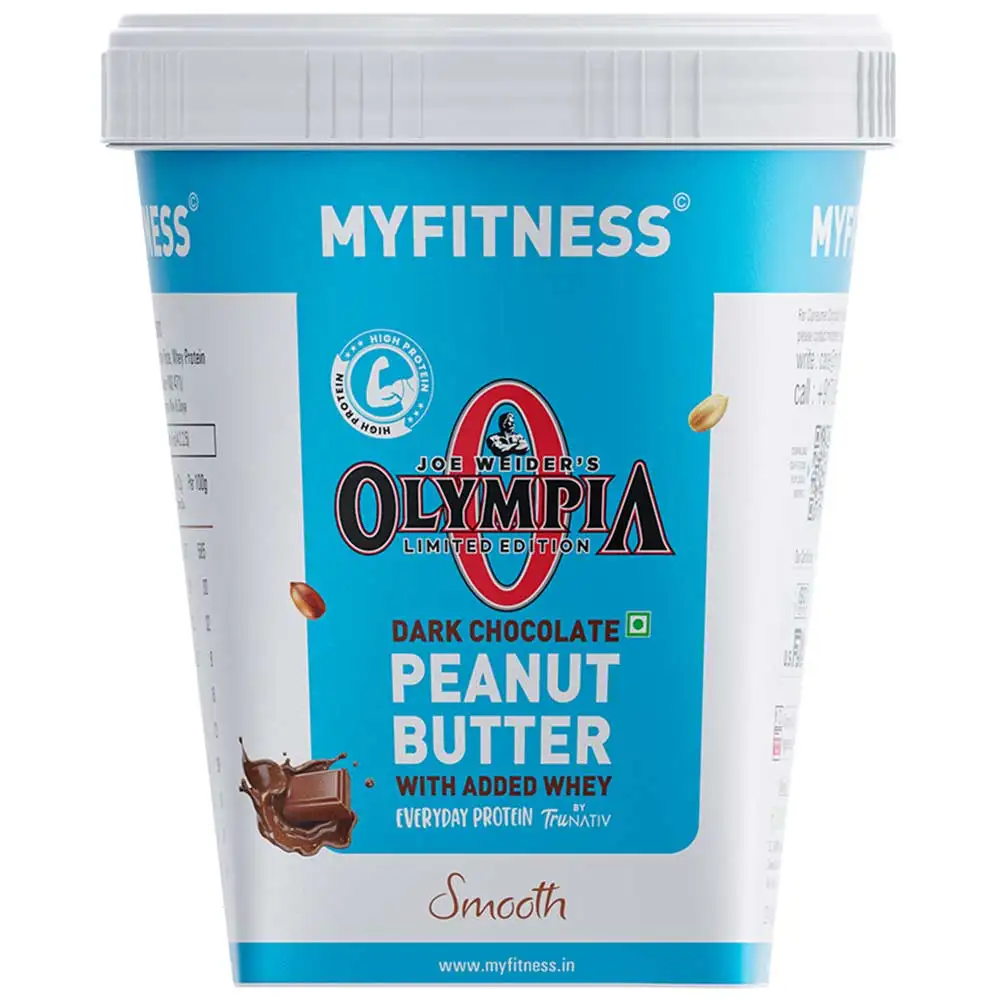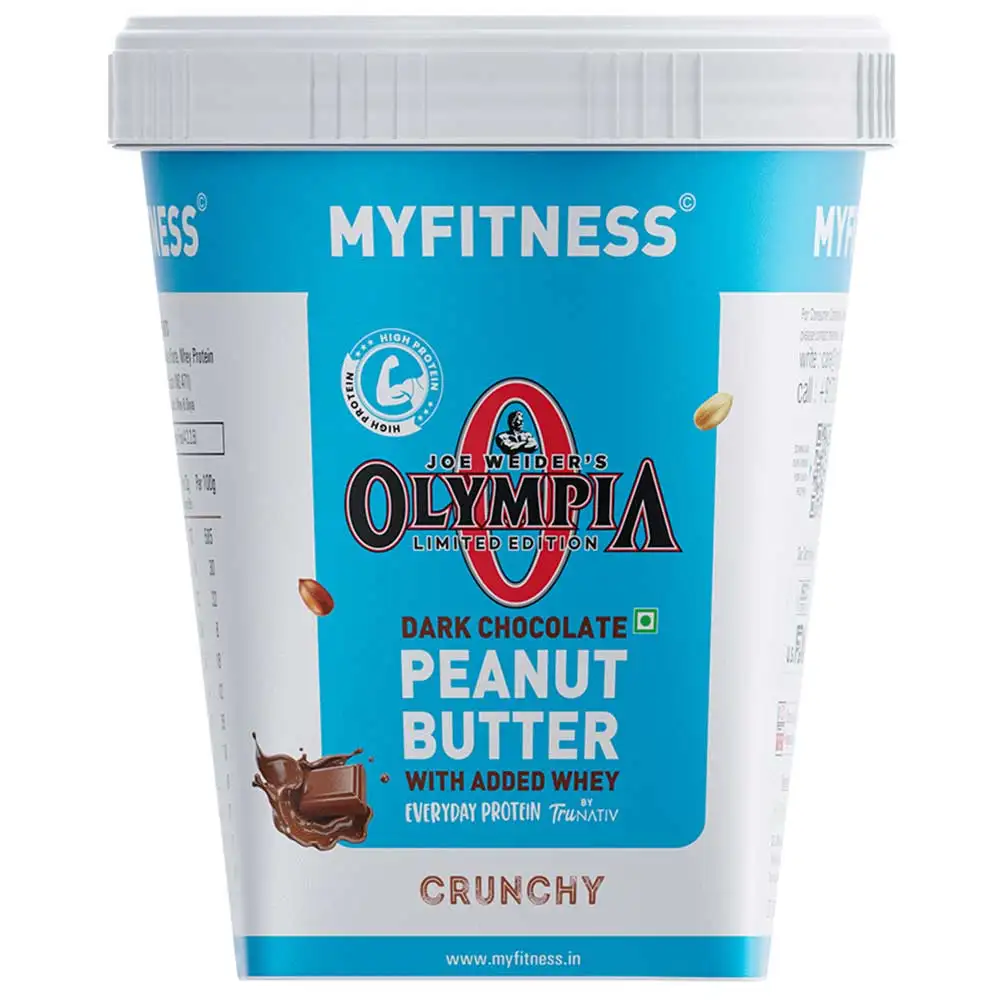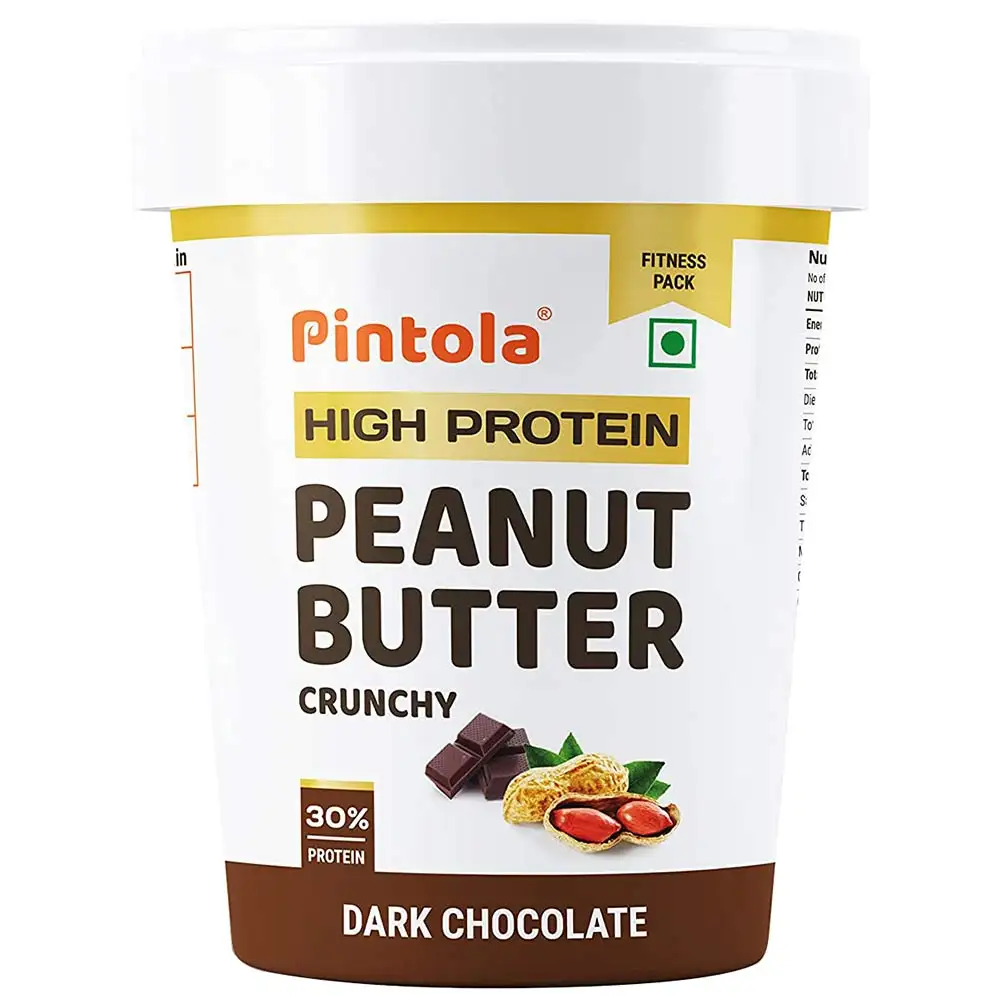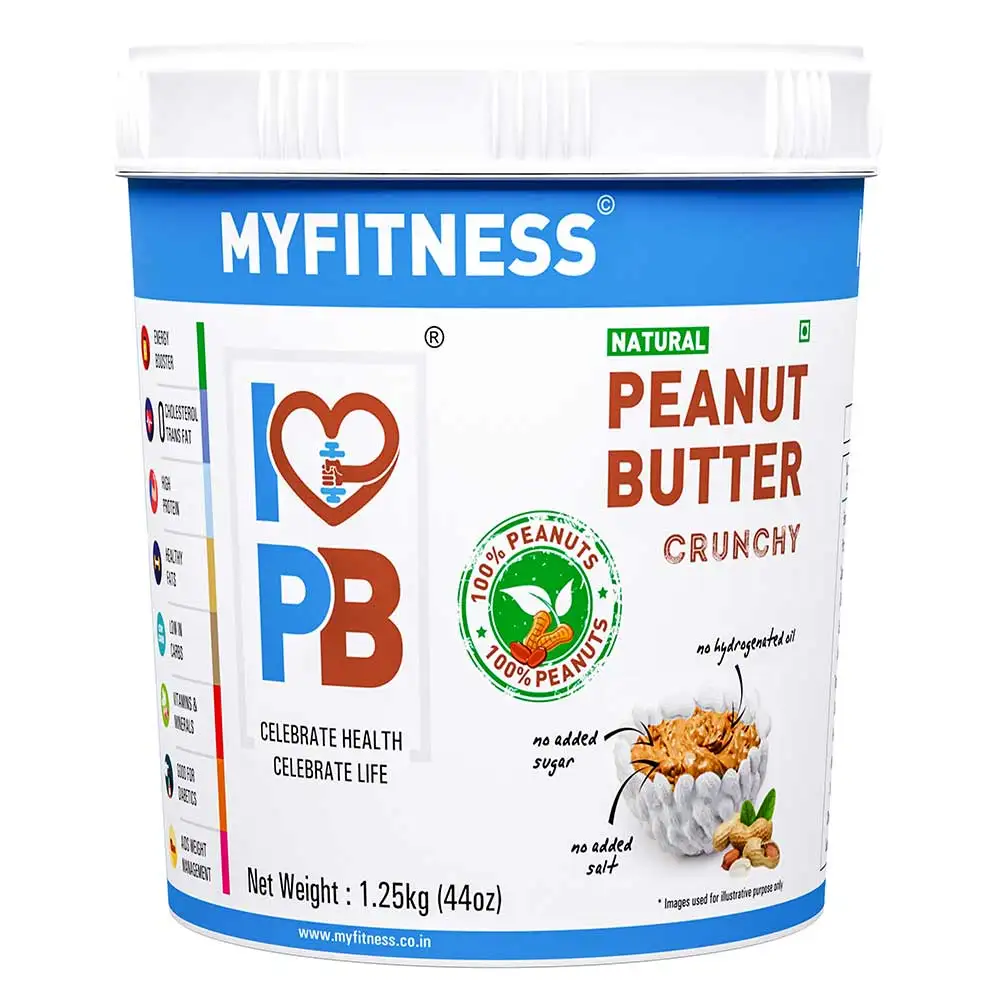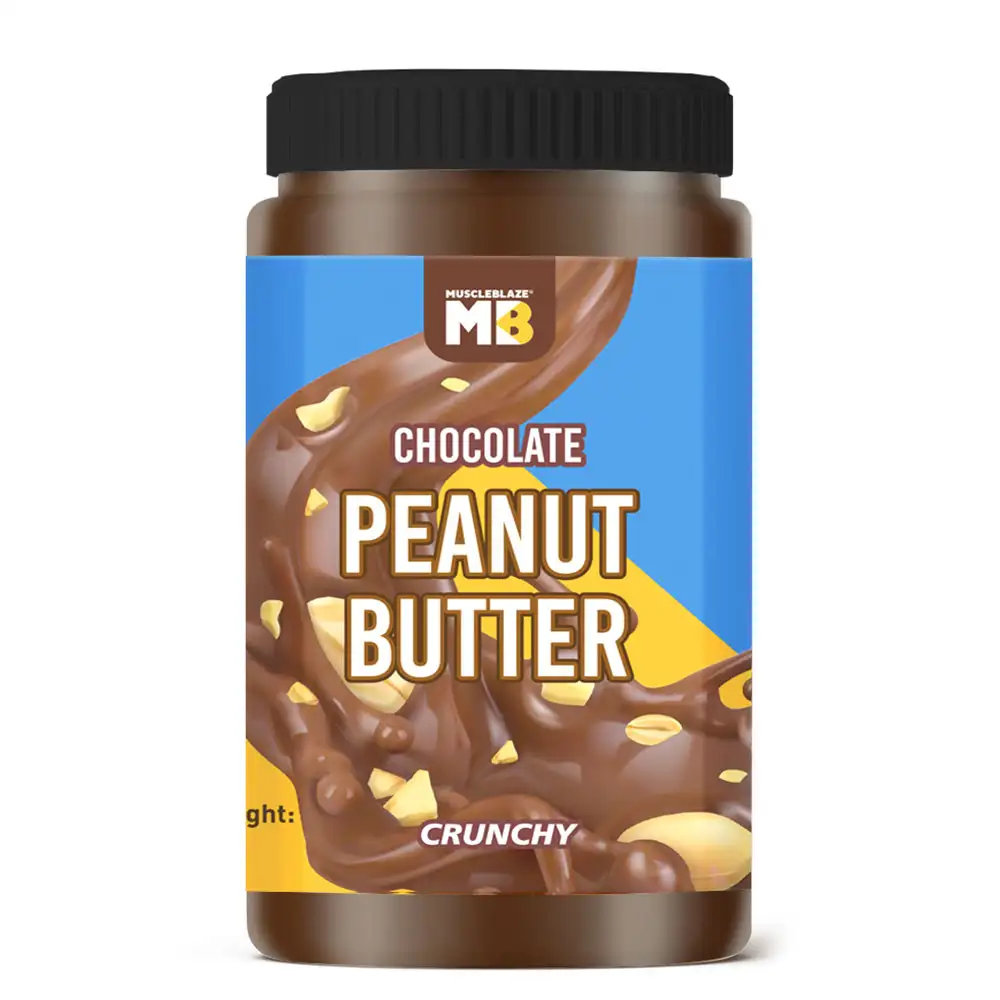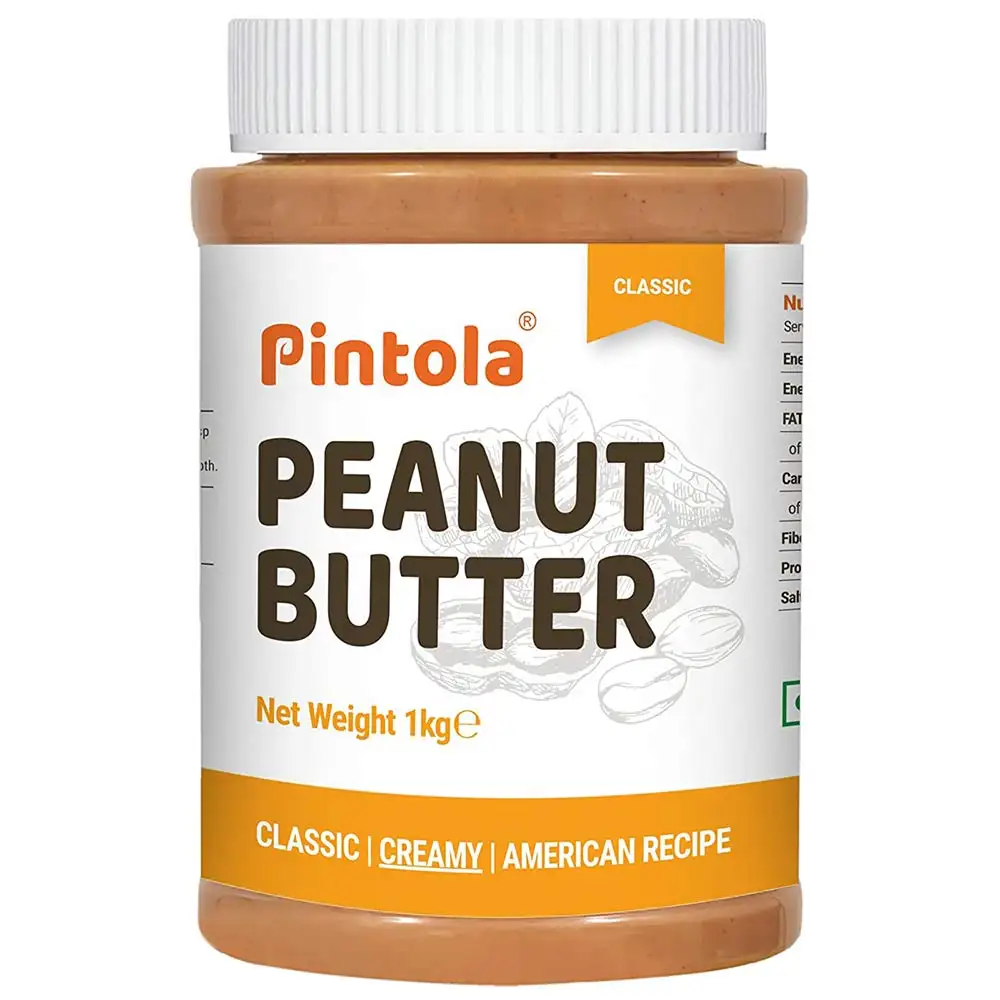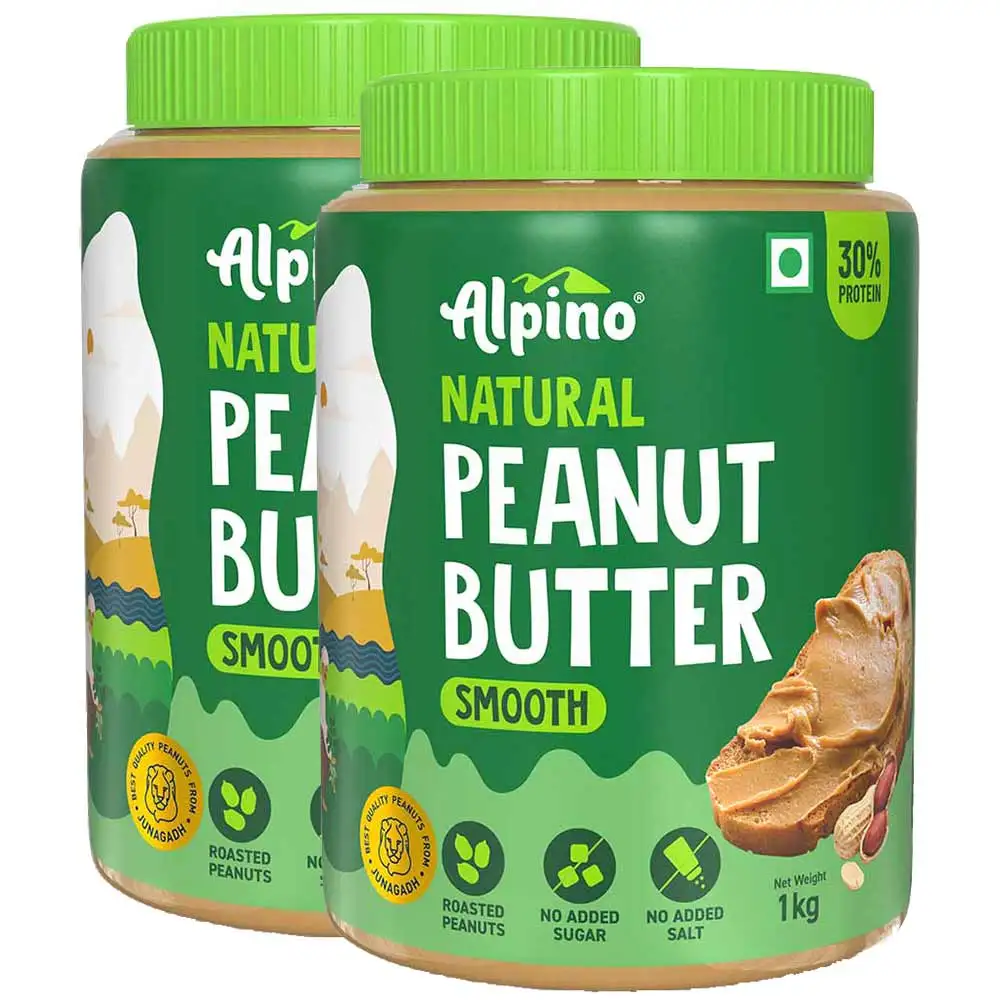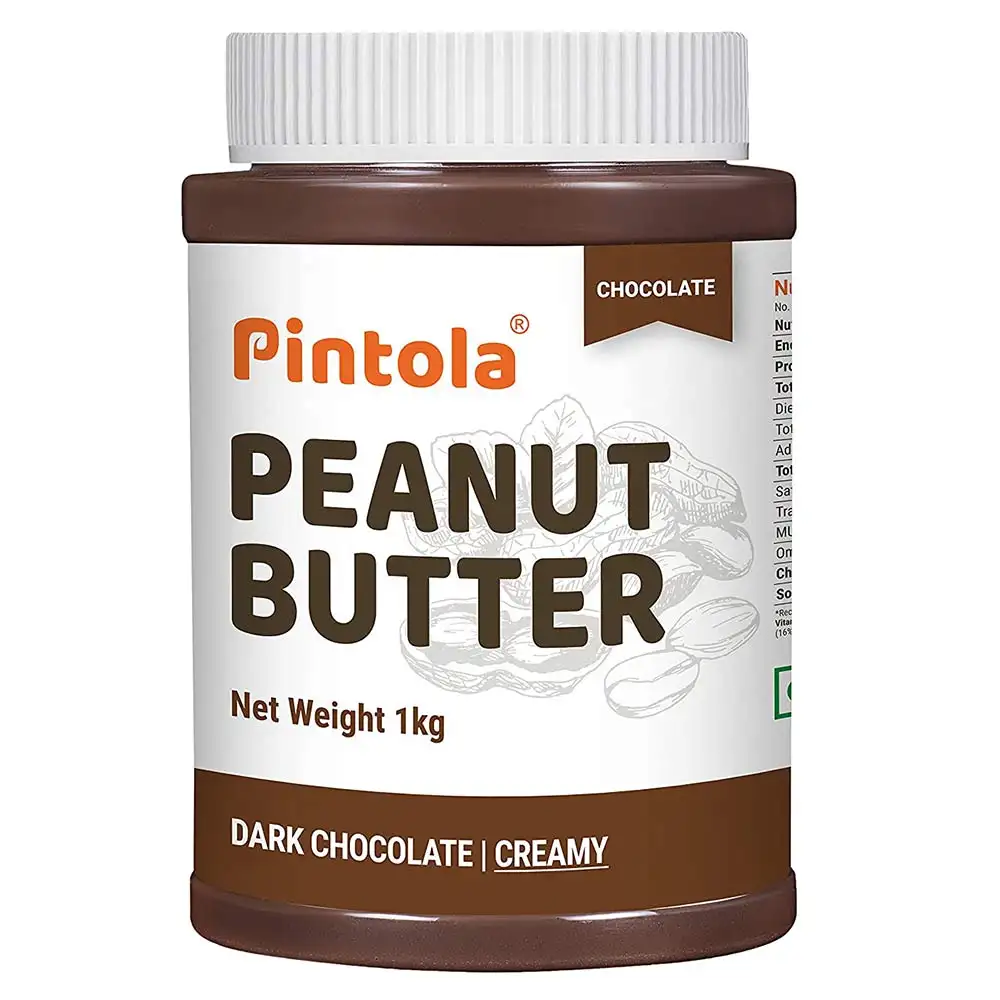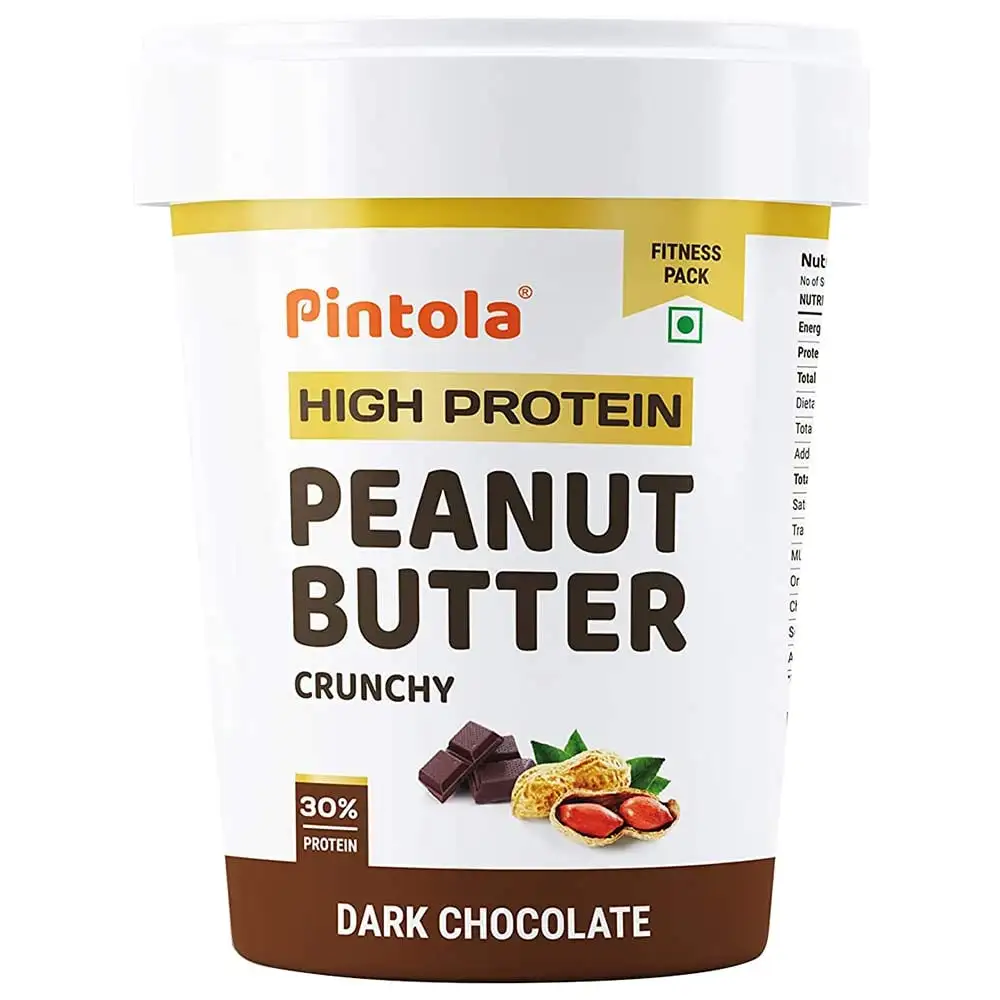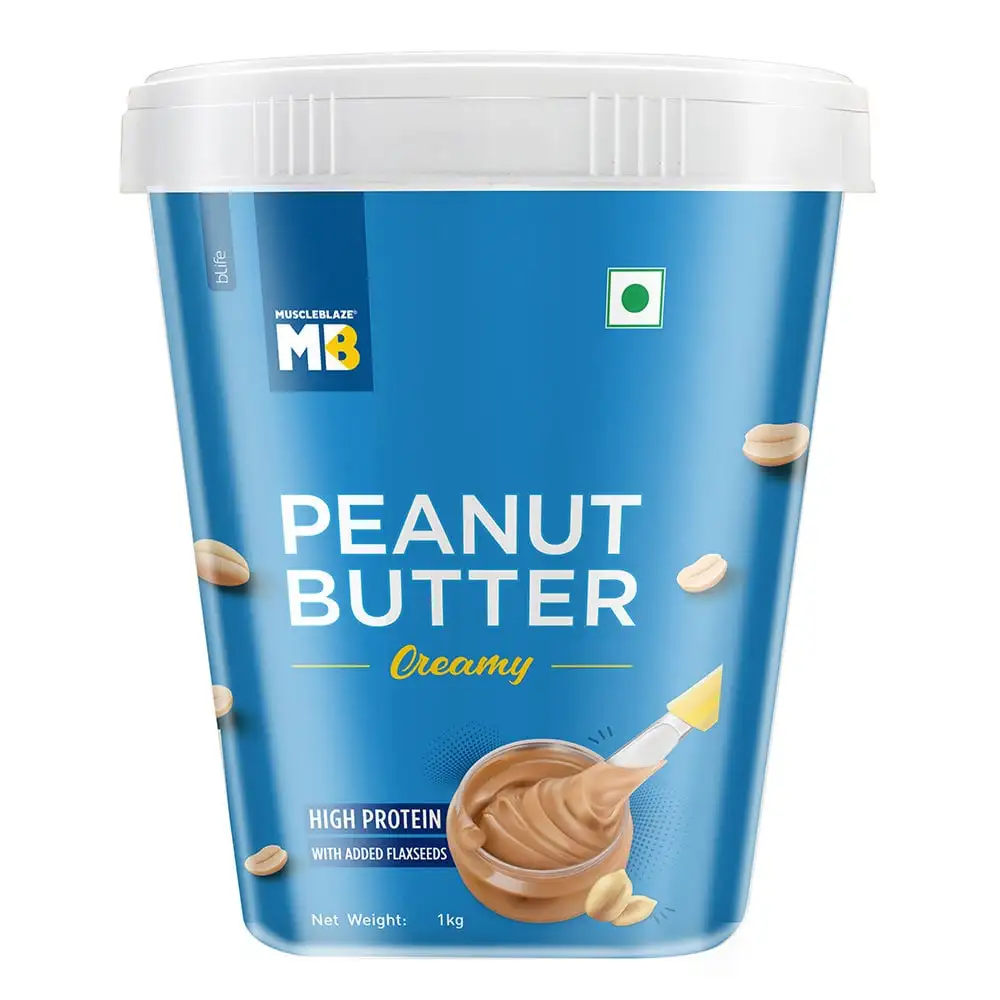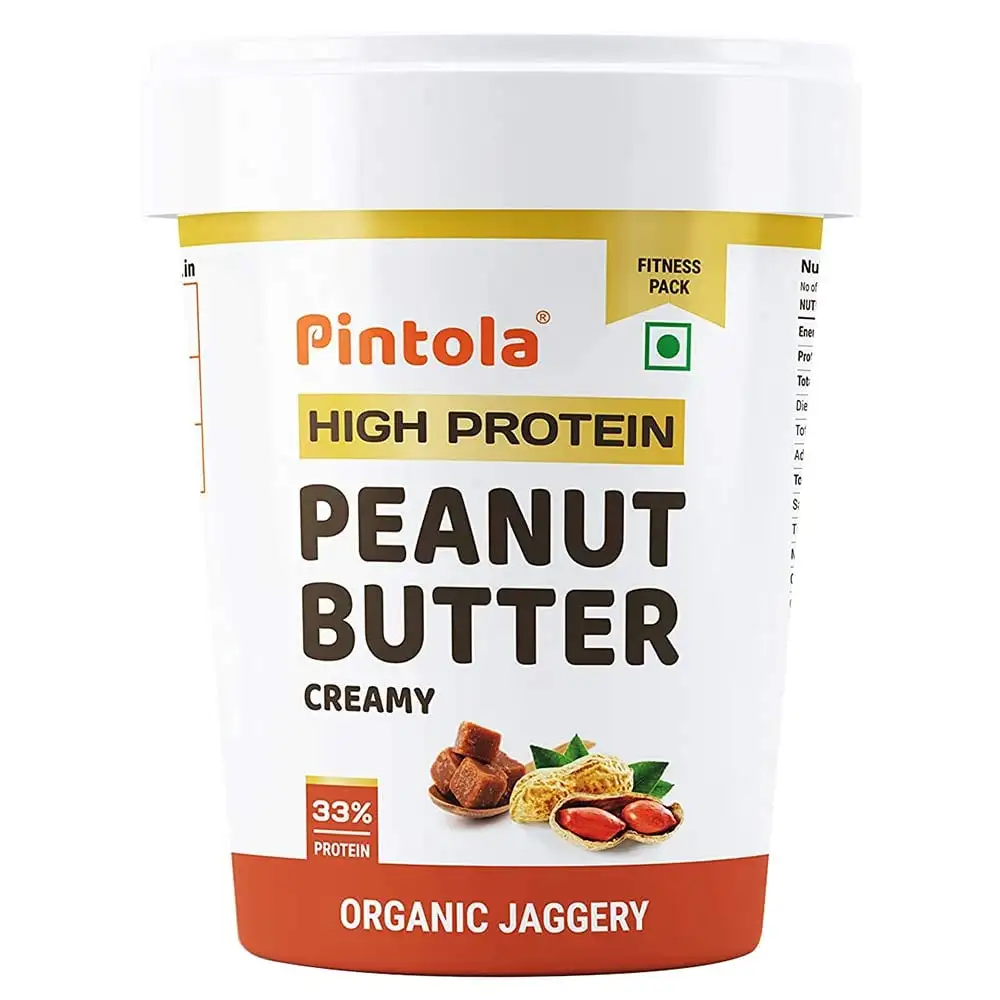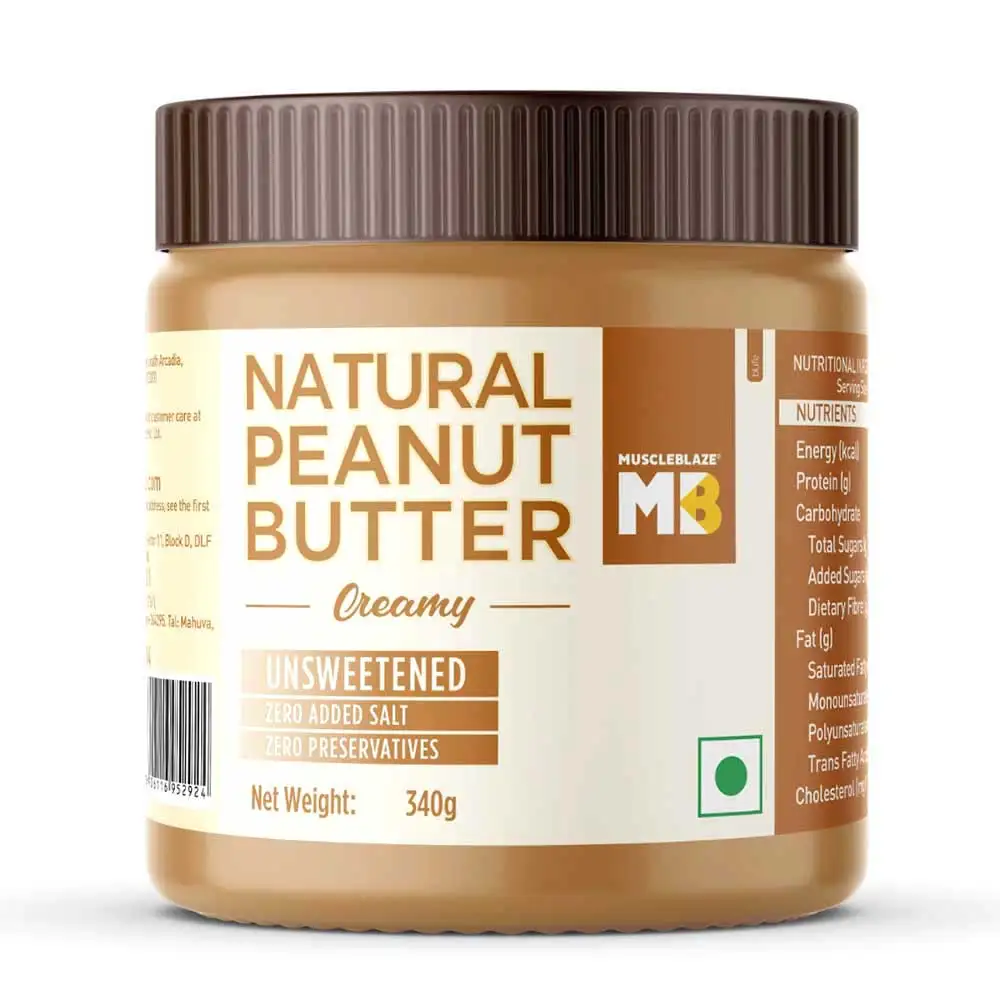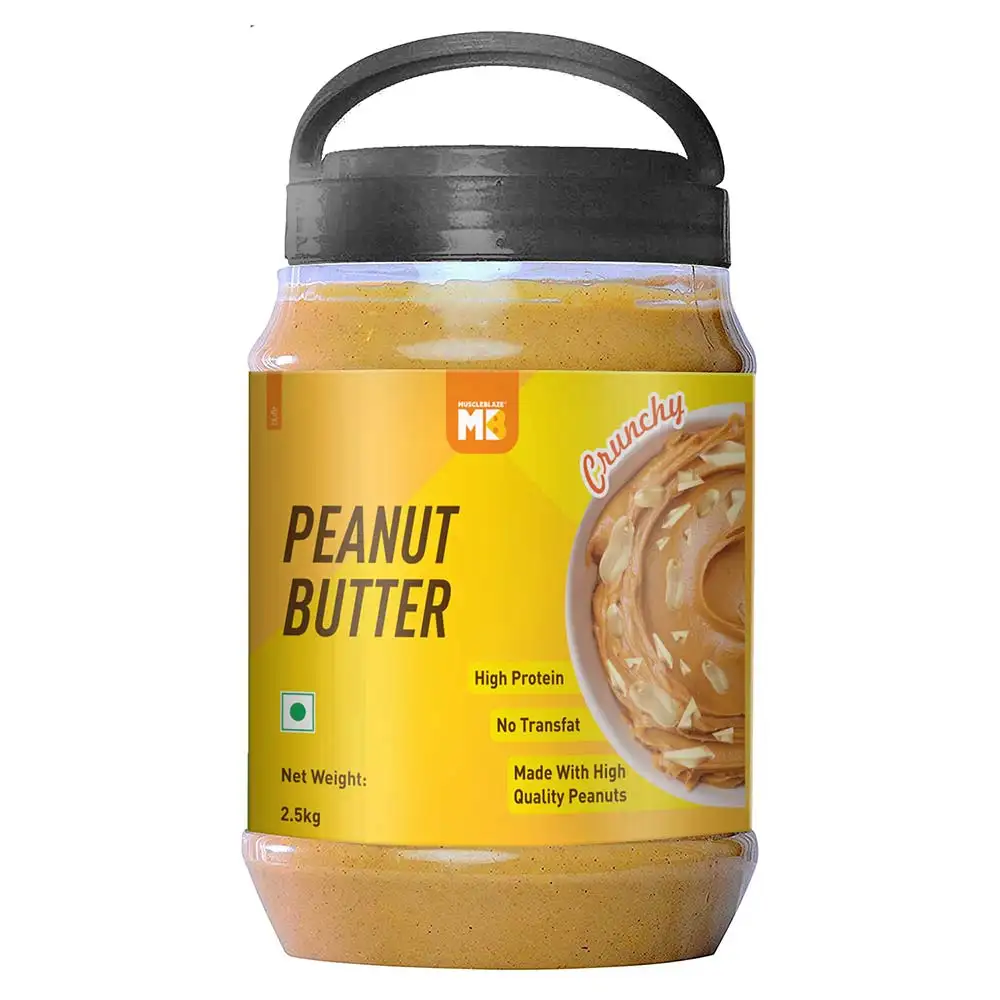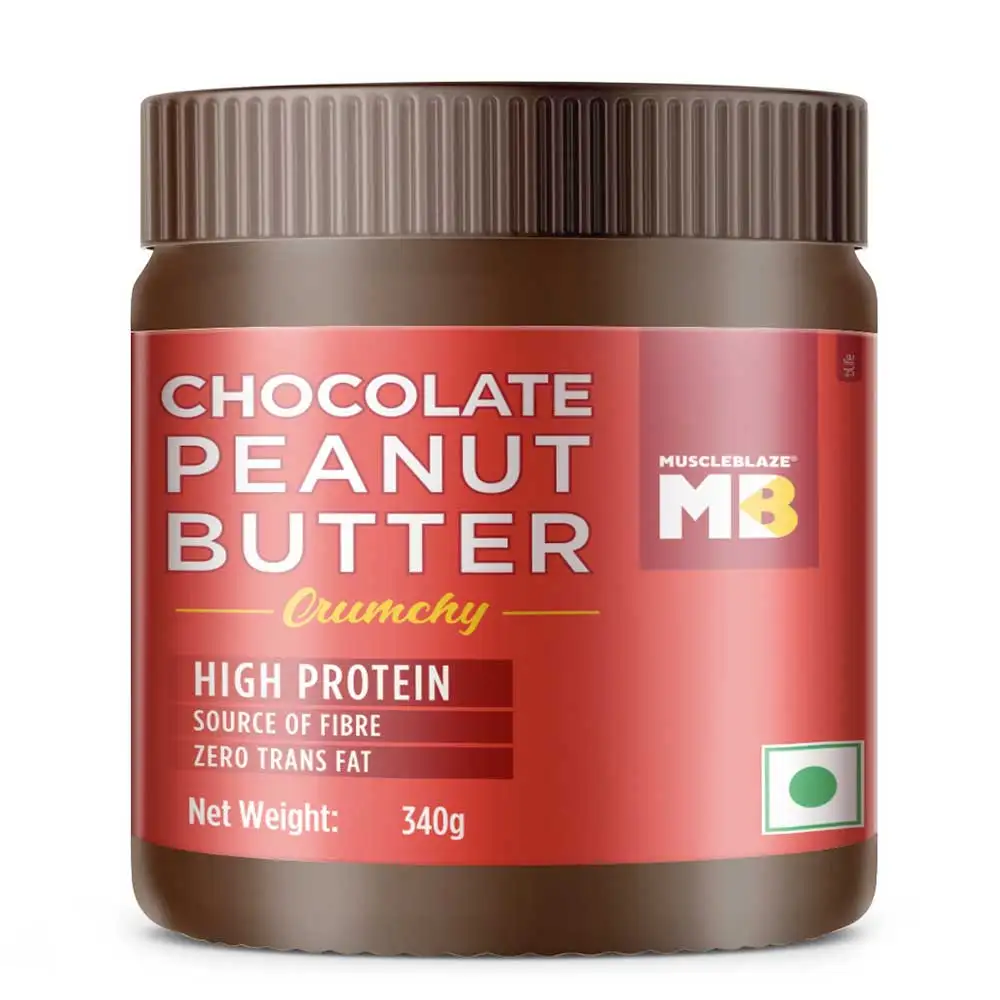Product Details
- Made With Roasted Peanuts And Very Little Amount Of Salt And Sugar. 100% Non-GMO / Gluten Free / Vegan
- 8g Of Protein, 16g Of Healthy Fats, 0g Trans Fat & 0mg Cholesterol Per Serving Of 32g.
- Oil Separation Is Natural Process In Peanut Butter, STIR WELL BEFORE USE For Best Texture And Consistency.
- Manufactured Under US FDA, APEDA, BRC, FSSC, HALAL, KOSHER, FSSAI, GMP, ISO 22000 Certified Facility, Under Strict Quality Control
Alpino Classic Peanut Butter, 0.400 kg, Crunch
Alpino came into existence when six friends came together. Chetan Kanani, Priyank Vora, Hiren Sheta, Milan Gopani, Mahatva Sheta and Umesh Gajera concluded that Indians needed an excellent source of nutrients. As a result, they launched the Alpino food company. It's an Indian brand and one of the first purveyors of high protein health foods in India. They offer a range of products like Peanut Butter, Super Muesli, Apple Cider Vinegar and Organic Green Tea.
Alpino offers a range of peanut butter products rich in protein. There are about 16 variants of peanut butter, among which Alpino Classic Peanut Butter Crunch is very popular. Classic Peanut Butter contains 24 % protein with a maximum weight of 2.4 kg. This peanut butter offers a lot of health benefits along with great taste and shelf life. The Alpino Peanut Butter Crunch contains roasted peanuts sourced from farms in the fertile land of Junagadh, Gujarat.
Key Ingredients of Alpino Classic Peanut Butter
Alpino Classic Peanut Butter is a 100% natural and vegan food product. This Classic Peanut Butter is manufactured with the following key ingredients.
- Roasted Peanuts (Gluten-Free, Non-GMO, and Vegan)
- Sugar
- Hydrogenated Soya Oil
- Salt
- Emulsifier (E471- 100% Plant-Based)
Key Benefits of Alpino Classic Peanut Butter
Alpino Crunchy Peanut Butter has excellent health benefits if you use it regularly. If your normal diet has a shortage of protein, then adding Peanut Butter Alpino can compensate and also provide additional micronutrients essential for maintaining a healthy body. The key benefits of Alpino Peanut Butter Crunch include,
- Boosts Energy
- Good for heart and bone health
- Improves the body’s natural immunity
- It keeps you full &; satiated for a longer time
- Helps in weight management
- Promotes lean muscle growth
- Lowers bad cholesterol (LDL) levels
- Reduces risk of diabetes
How to Use of Alpino Classic Peanut Butter
This legendary Classic Peanut Butter is ideal for usage in the morning to get instant energy. Individuals who exercise in the morning can eat it pre-meal and boost their energy for the upcoming gym session. The protein available in Classic Peanut Butter helps in muscle recovery after an intense workout. Instead of gulping Alpino Peanut Butter Crunch directly, you can balance it by adding some quantity in a protein shake or smoothie or spreading it on a bread toast. Alpino Classic Peanut Butter can also be taken as an evening snack to avoid eating junk food outside and get instant energy that will rejuvenate you for late evening activities. Finally, stir it well before each usage.
Safety Information of Alpino Classic Peanut Butter
You must follow the following safety precautions before and during the use of Classic Peanut butter.
- Keep the Classic Peanut Butter bottle in a cool, dry and clean place
- Avoid direct sunlight
- Keep the lid of the bottle tight once opened
- If you are allergic to peanut or soya, please don’t use this product
- Use the product in moderation
- Consume the product within 18 months from the date of manufacturing
Why to Choose?
The below reasons make the Alpino Classic Peanut Butter purchase worthwhile.
- The product has roasted peanuts and is 100% vegan
- The product has no trans fat
- Classic Peanut Butter has 25% protein per serving of 32g
- It has a 100% plant-based protein
- It contains vitamin B3, E and B6
- It contains fibre which is excellent for digestion
- The product is completely gluten-free
- The oil separation is done through a natural process
- The product is manufactured in US FDA, BRC, APEDA, FSSC, HALAL, KOSHER, FSSAI, GMP, ISO 22000 Certified Facility, under strict quality control
- The product has the least amount of salt and sugar
- The product has no cholesterol
- The taste is excellent and crunchy
- It boosts your energy instantly
FAQs 1. What is Peanut Butter?
Ans: Peanut butter is a paste made from roasted peanuts. Ingredients like peanut oil, organic sugar cane, organic vanilla, sea salt, ginger, allspice, sea salt and molasses is used to get the smooth texture and flavour. It is popular all over the world and can be used as a spread on toast, bread or can be added to smoothies. 2. Why should you eat Peanut Butter?
Ans: Peanut butter is good for your health, as it is a good source of protein, unsaturated fats and contains all essential amino acids. Plus, they taste great, and have a pleasant nutty aroma. Apart from that, peanut butter offer the following benefits such as: - Works an energy booster
- Full of nutrition and makes you feel fuller longer
- Good for bone health and heart health
- Boost immunity
- May prevent cancer
3. What is the best time to eat Peanut Butter ?
Ans:Peanut butter in the morning provide energy boost in the morning. People with strict workout in the morning can have it to get that instant energy. The protein in peanuts helps the muscles to repair quickly and easily from an intense workout. Don’t just gulp the handful of peanut butter, balance it by adding peanut butter in a smoothie, protein shake or spreading it on toast. Taking peanut butter an evening snack is a great way to prevent unhealthy food cravings and giving you that energy boost when you are feeling low. You can still have some before dinner. 4. Is Peanut Butter good for weight loss?
Ans: If you are looking to lose weight, peanut butter with no added sugar, no cholesterol, no trans fat, no added salt and no hydrogenated oils is a great option. There are a lot of creative ways you use to add peanut butter to your diet. The key to consuming peanut butter for weight loss is in moderation. Make sure to have 2 or 3 servings of two tbsps of peanut butter a few times per week. 5. What is the healthiest Peanut Butter to eat?
Ans:The healthiest peanut butter to consume is the unsweetened one with healthy fats, no added sugar, no added salt, no cholesterol, no trans fat and no hydrogenated oils. Plus which is only made of 100% fine roasted peanuts like Nouriza peanut butter. Buying Guide 1. What are the signs of protein deficiency in a body?
Protein is one of the most essential nutrients that our body needs as it is the building block of skin, muscles, hormones and enzymes. Deficiency of protein can lead to various health issues. If you want your body to function properly, then you should make sure that your body gets enough protein. When a body is protein-deficient, it shows the following signs: - Loss of muscle mass- Protein aids in maintaining the density and strength of bones. If you are experiencing loss of muscle mass, muscle weakness, muscle pain means you are not giving your body enough protein.
- Hair, skin and nail issue- Protein plays a major role in keeping your hair, skin and nails healthy. Protein deficiency can cause weak, brittle nails. It impacts the skin and makes it cracked and dry. It also makes your hair fade and thin.
- Increased risk of infections and bone fractures- A low protein diet can increase the risk of infections, bone fractures, bone weakness and even osteoporosis. Protein is essential to support bone metabolism and calcium absorption.
- Fatty liver- Fatty liver is the most common symptom of protein deficiency. The condition may develop into inflammation, fatty liver disease and liver scarring, if left untreated.
- Irregular menstrual cycle- The most common reasons most of the women suffer from infertility and irregular periods because of PCOS ( Polycystic ovary syndrome). Insulin resistance affects 50% to 70% of women with PCOS. High carb diets/high sugar, low protein can contribute to insulin resistance, inflammation, fatigue and weight gain that disturb the balance of hormones that are required to sustain a regular cycle.
2. What are the major things to consider when buying a peanut butter?
Peanut butter is a powerhouse of nutrients such as folate, vitamin E, niacin and among many others. Rich in proteins and fiber and gives an instant energy to the body. Peanut butter is popularly known for boosting body immunity and metabolism. It reduces hunger cravings and prevents unhealthy food cravings. Since there are so many varieties of peanut butter out there and choosing the right one can be challenging. Here is the list of things to consider when buying peanut butter. - Look for natural, organic variety- Roasted peanuts are used to make peanut butter but along the way there are certain unhealthy ingredients are used. One thing to consider when buying peanut butter is to always choose natural, organic, non-hydrogenated peanut butter.
- No Added Sugar- Added sugar is found in most of the manufactured peanut butter to make it tastier for the consumers who prefer a more sugary version. Make sure you don’t opt for the “natural variety” that contains about 3 to 5 grams of added sugar, which is equal to 1 tbsp per 2 tbsp serving. Choose the one that is free from sugar in any form, ranging from molasses, corn syrup to stevia and honey etc.
- No Added Oils- Hydrogenated oil and palm oil in your peanut butter is a source of trans fats, which are responsible for strokes, heart diseases and other high cholesterol related issues. A healthy peanut butter variety should not contain no trace of above mentioned oils.
- Less Ingredients- Remember, the less the ingredients, the better it is. Look for the peanut butter with less ingredients, which should only include peanuts and no added preservatives in the form of excessive salt and sugar. Avoid the one with “reduced fats”.
Without a doubt peanut butter is a healthy choice but excess of everything is bad for health. So, consume it in moderation like two tablespoon serving per day. 3. What are the different types of nut butters?
Nut butters can be spread on toast, added to smoothies, protein shake and mixed into baked goods. There are various types of nut butters available on the market from cashew to walnut varieties. Let’s take a look at different types of nut butters. Almond Butter Almond butter can be used on waffles, added to your smoothies, baked goods and spread on toast. It has more calcium than peanut butter and 66% of the fat is present in the nutritious monounsaturated form. Look for the almond butter that doesn’t contain any added ingredients. It tastes creamy and fantastic. Cashew Butter Cashew butter is smooth in texture and sweet in taste. It is low in fat than other nut butters, most of its fat is monounsaturated and it is rich in copper, which is important for iron use in the body. Opt for a cashew butter that only contains salt and cashews. Walnut Butter High omega-3 content is found in walnuts. Omega-3 fats are good for heart health and also improve symptoms of arthritis. Walnut butter needs to be kept in the fridge because of the high concentration of omega-3s in it. You can spread it on toast or can combine it with your favourite peanut or almond butter for additional flavour. Peanut Butter Peanut butter is a staple food for many people around the world. It can be used in a sandwich, mixed in smoothies or cookies. 2 tbsp of peanut butter delivers 7 grams of protein, which makes it a best breakfast option. When buying peanut butter, read the label carefully as many peanut butter brands, add sweeteners like corn syrup and sugar. Go for natural varieties that contain just roasted peanuts and salt. Pistachio Butter Pistachio butter is amazing. It is lower in fat and less oily as compared to the other nut butter varieties. It is rich in copper, which is responsible for the good strength in your tissues and bones while providing you with the instant and lasting energy.
1. What are the signs of protein deficiency in a body?
- Loss of muscle mass- Protein aids in maintaining the density and strength of bones. If you are experiencing loss of muscle mass, muscle weakness, muscle pain means you are not giving your body enough protein.
- Hair, skin and nail issue- Protein plays a major role in keeping your hair, skin and nails healthy. Protein deficiency can cause weak, brittle nails. It impacts the skin and makes it cracked and dry. It also makes your hair fade and thin.
- Increased risk of infections and bone fractures- A low protein diet can increase the risk of infections, bone fractures, bone weakness and even osteoporosis. Protein is essential to support bone metabolism and calcium absorption.
- Fatty liver- Fatty liver is the most common symptom of protein deficiency. The condition may develop into inflammation, fatty liver disease and liver scarring, if left untreated.
- Irregular menstrual cycle- The most common reasons most of the women suffer from infertility and irregular periods because of PCOS ( Polycystic ovary syndrome). Insulin resistance affects 50% to 70% of women with PCOS. High carb diets/high sugar, low protein can contribute to insulin resistance, inflammation, fatigue and weight gain that disturb the balance of hormones that are required to sustain a regular cycle.
2. What are the major things to consider when buying a peanut butter?
- Look for natural, organic variety- Roasted peanuts are used to make peanut butter but along the way there are certain unhealthy ingredients are used. One thing to consider when buying peanut butter is to always choose natural, organic, non-hydrogenated peanut butter.
- No Added Sugar- Added sugar is found in most of the manufactured peanut butter to make it tastier for the consumers who prefer a more sugary version. Make sure you don’t opt for the “natural variety” that contains about 3 to 5 grams of added sugar, which is equal to 1 tbsp per 2 tbsp serving. Choose the one that is free from sugar in any form, ranging from molasses, corn syrup to stevia and honey etc.
- No Added Oils- Hydrogenated oil and palm oil in your peanut butter is a source of trans fats, which are responsible for strokes, heart diseases and other high cholesterol related issues. A healthy peanut butter variety should not contain no trace of above mentioned oils.
- Less Ingredients- Remember, the less the ingredients, the better it is. Look for the peanut butter with less ingredients, which should only include peanuts and no added preservatives in the form of excessive salt and sugar. Avoid the one with “reduced fats”.

